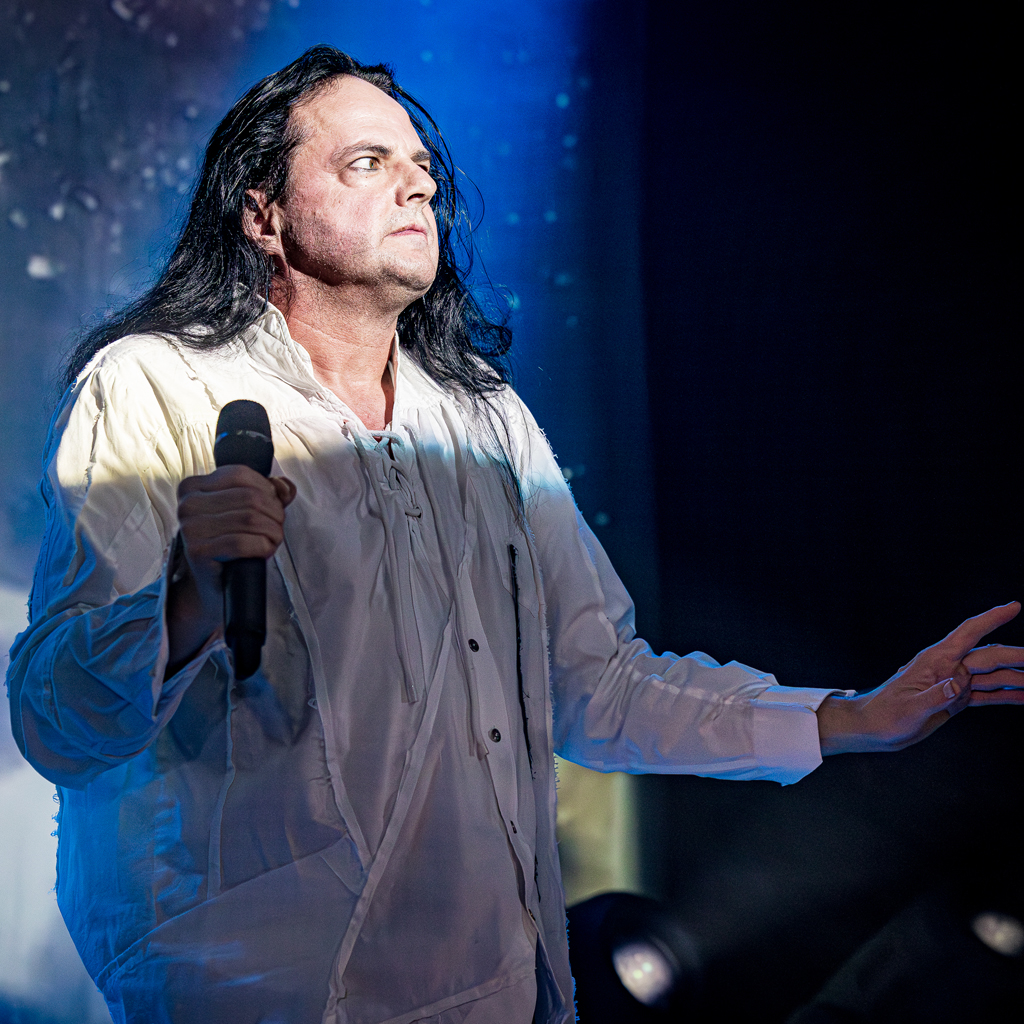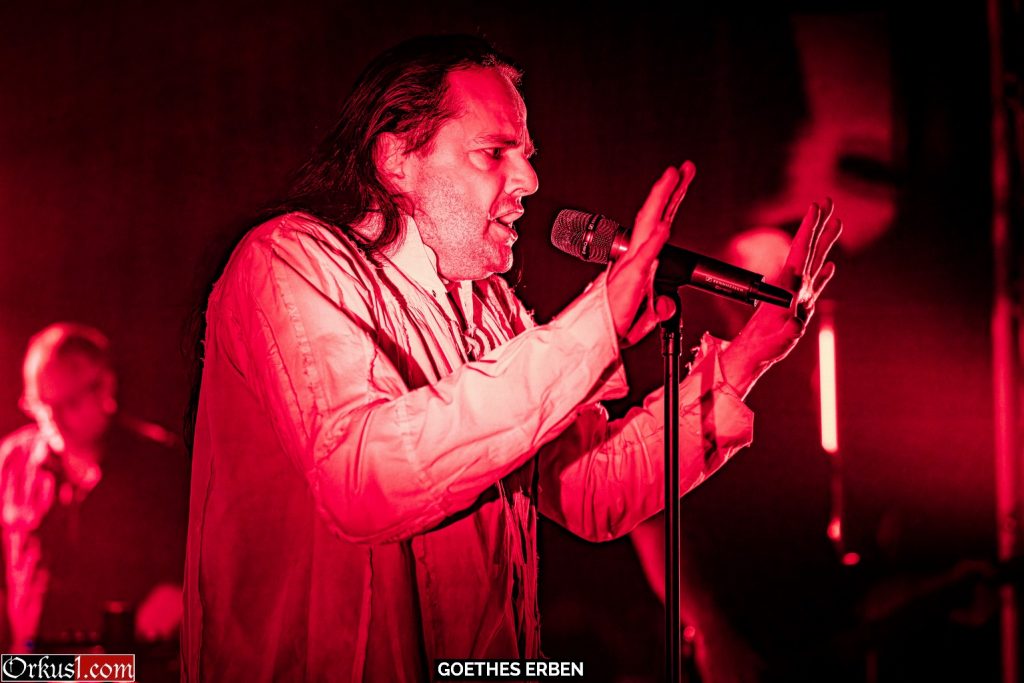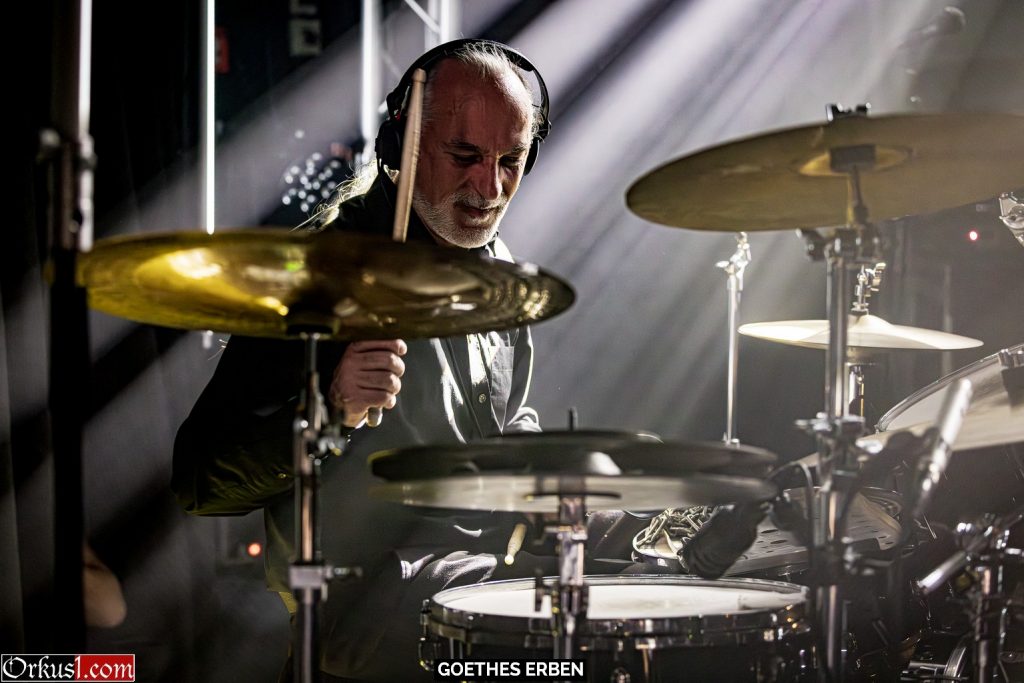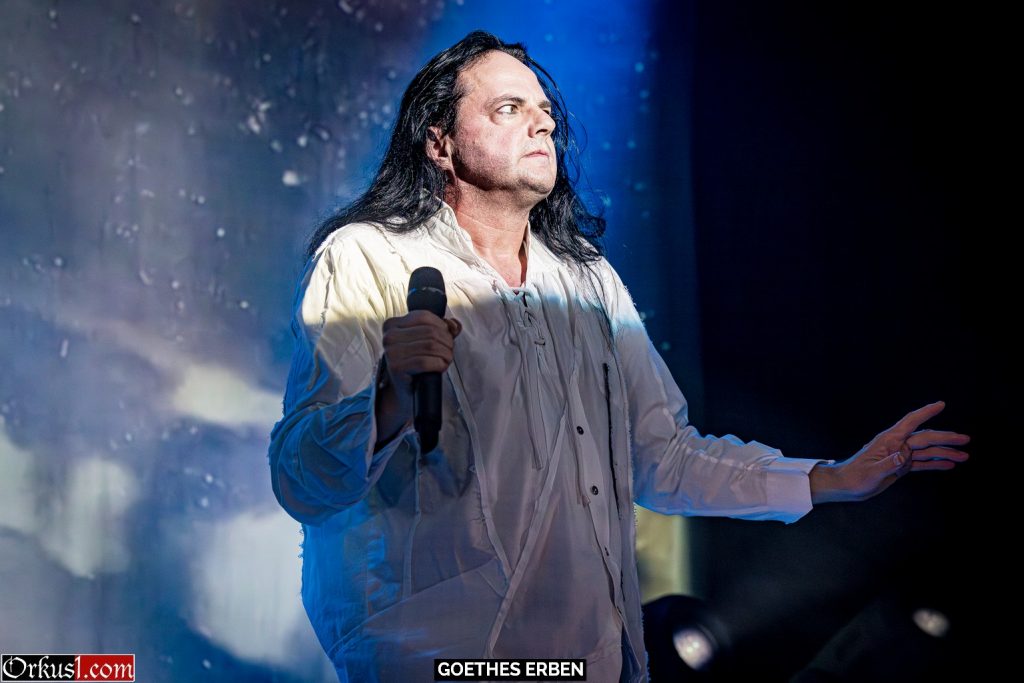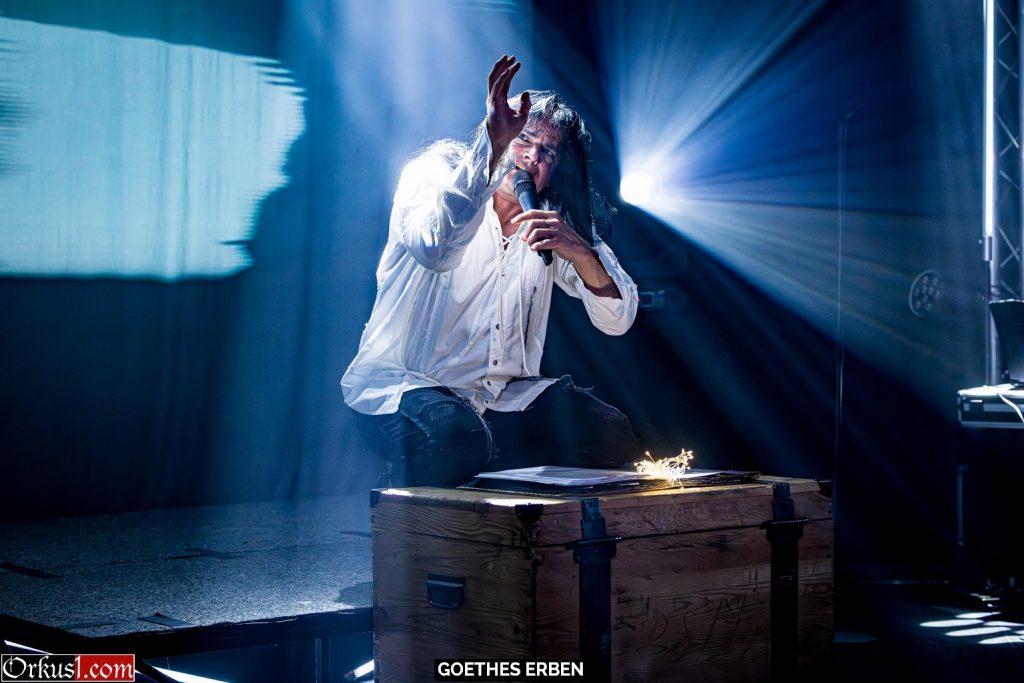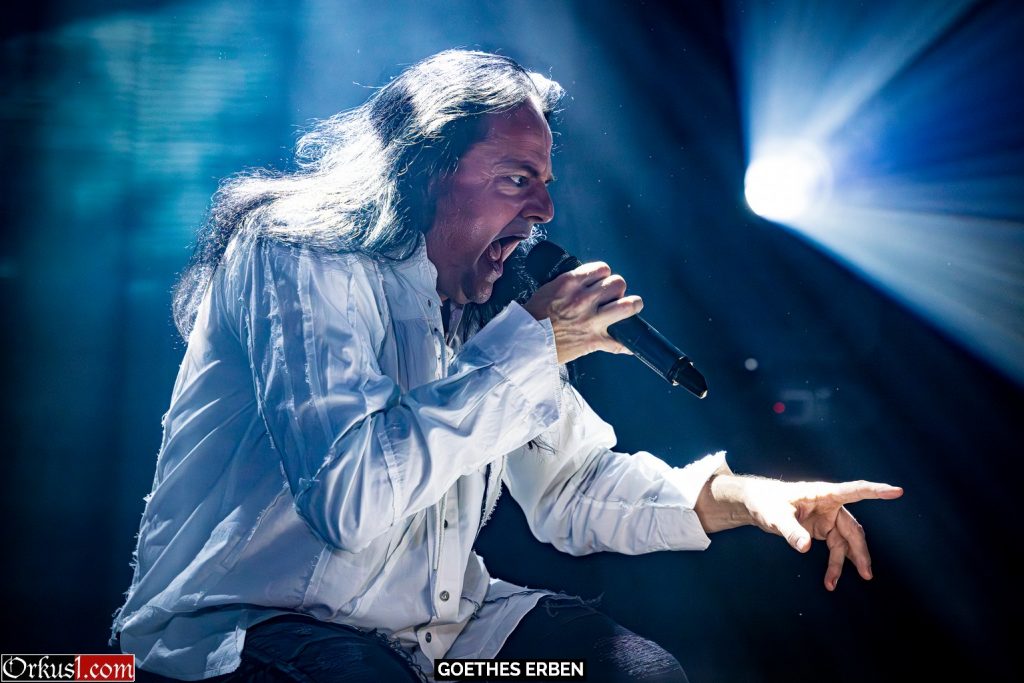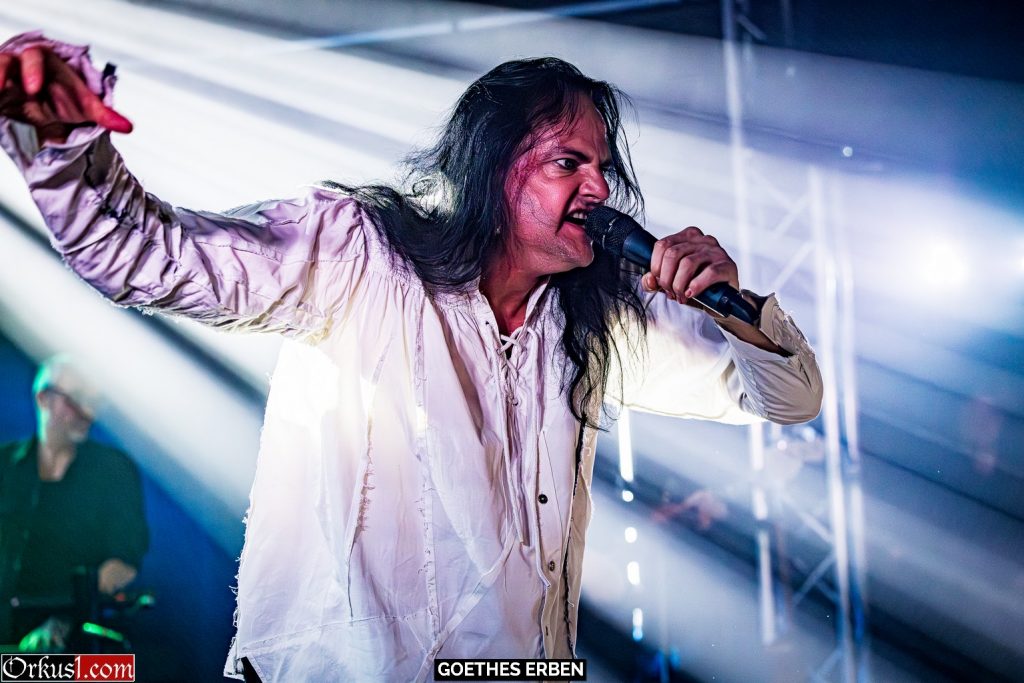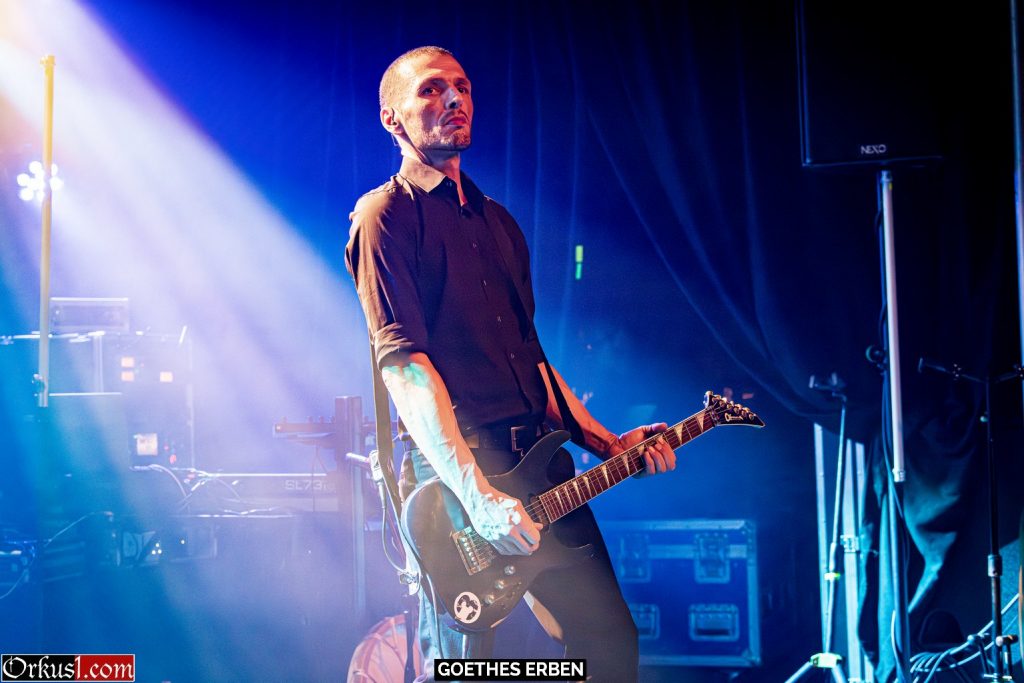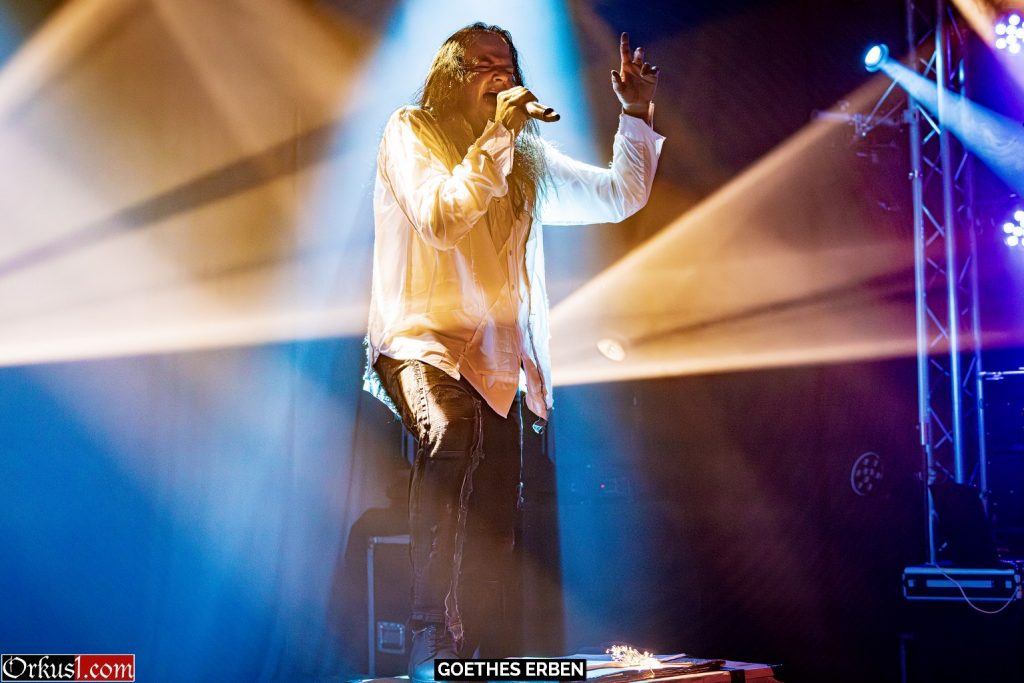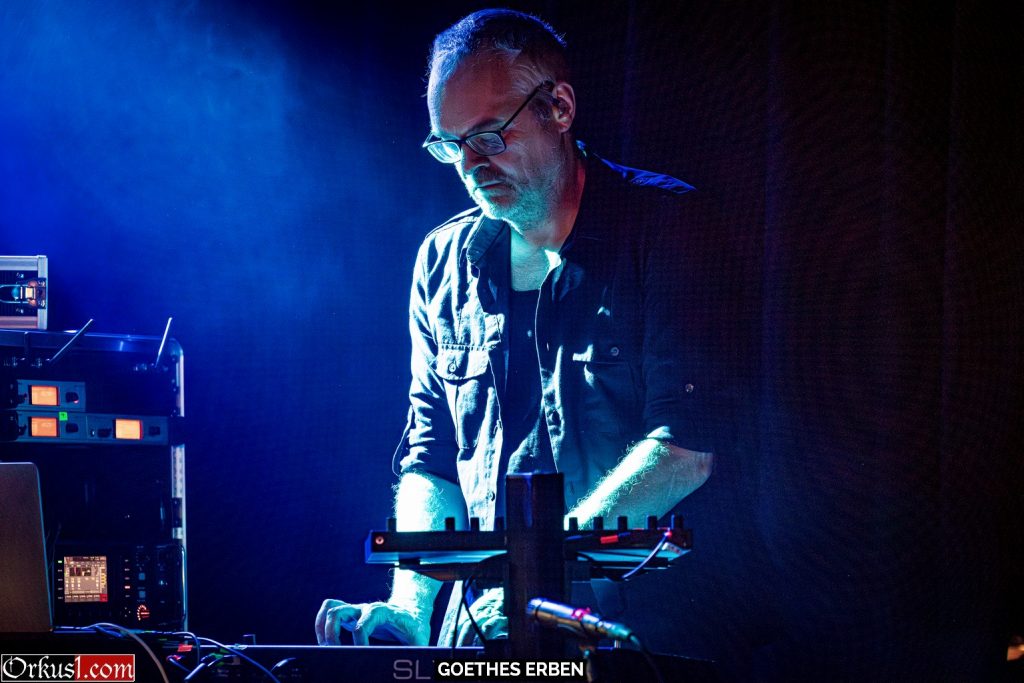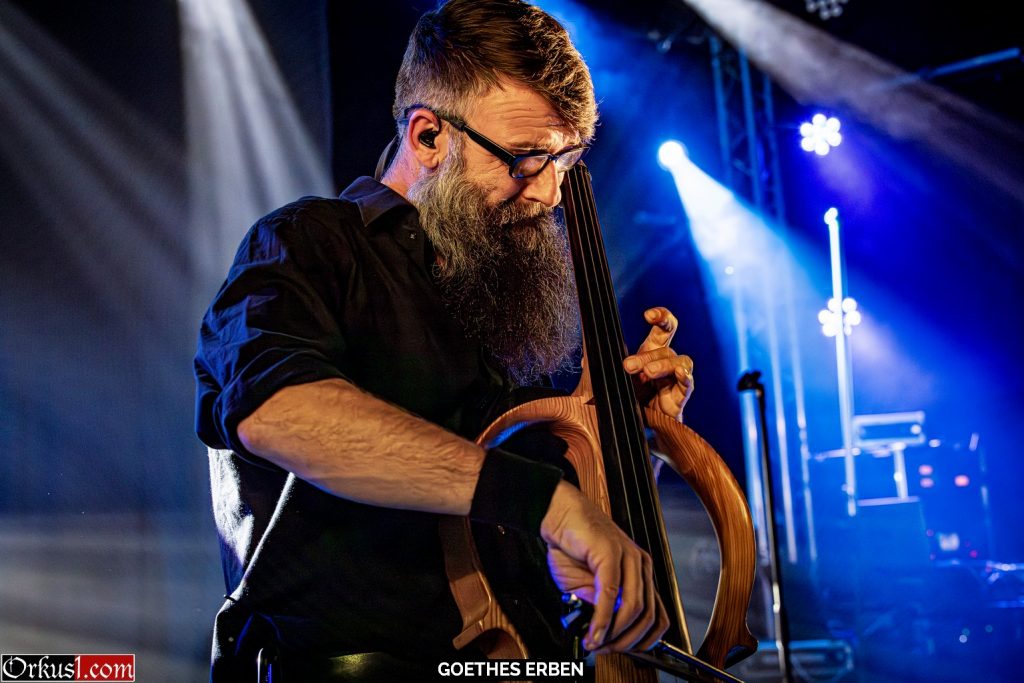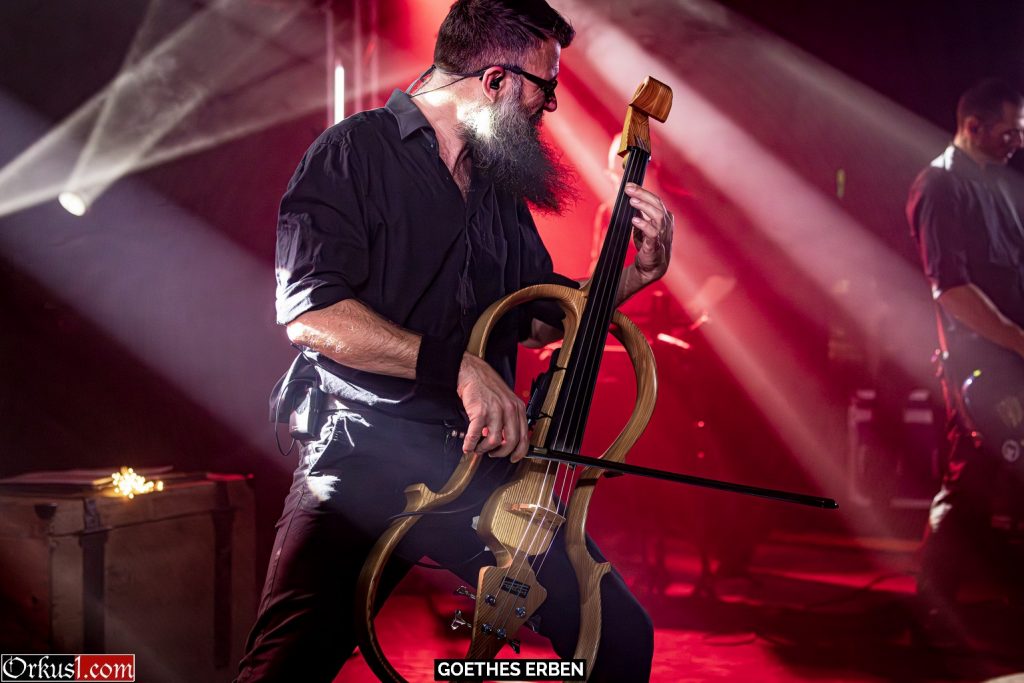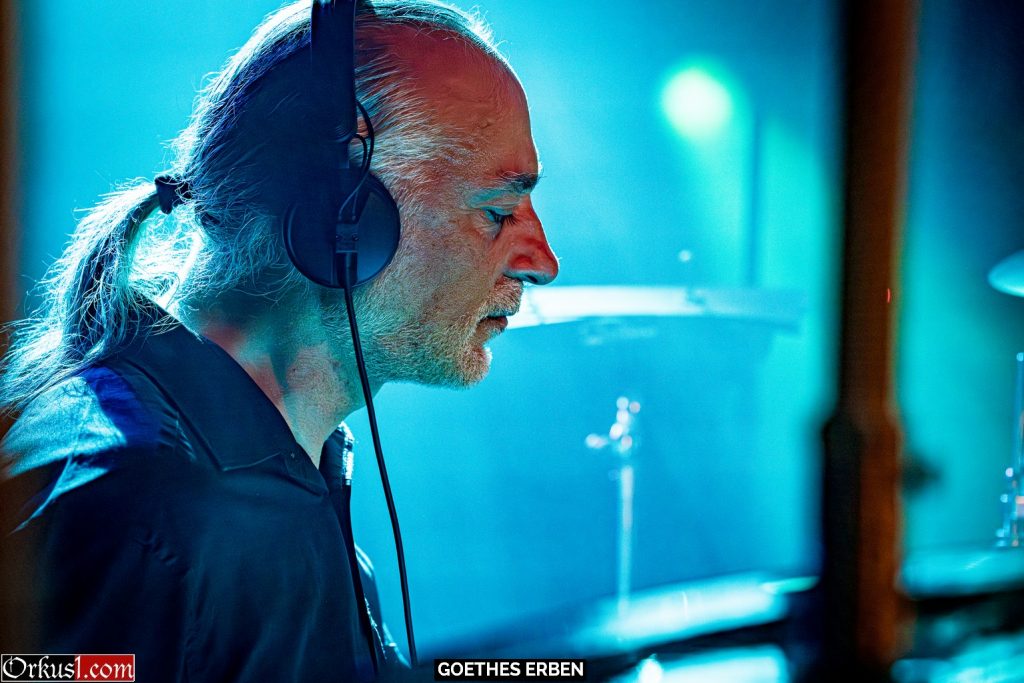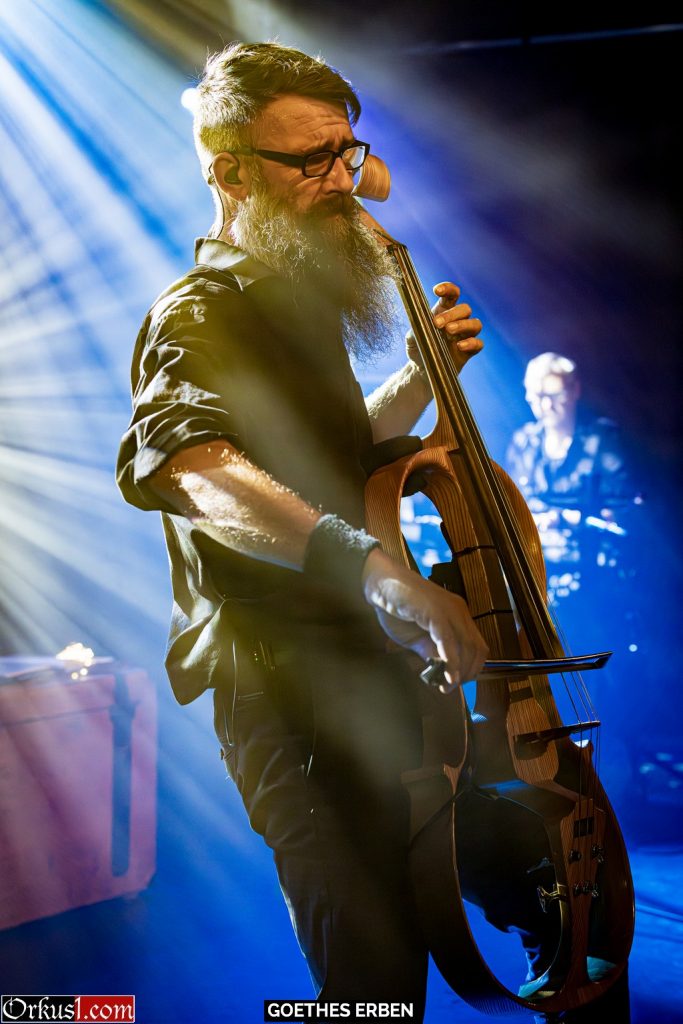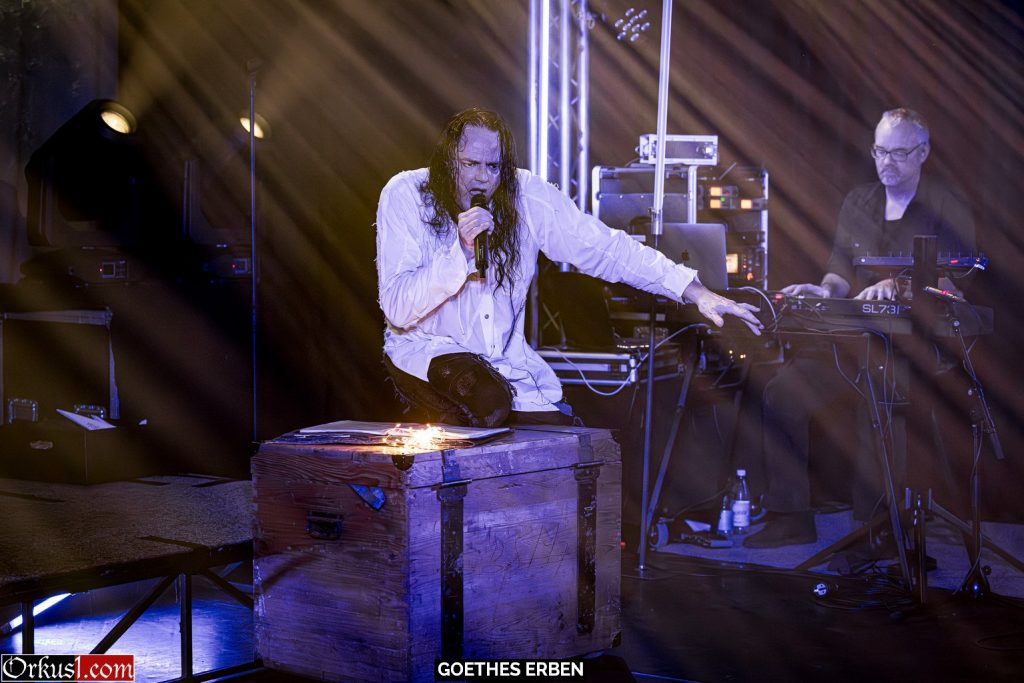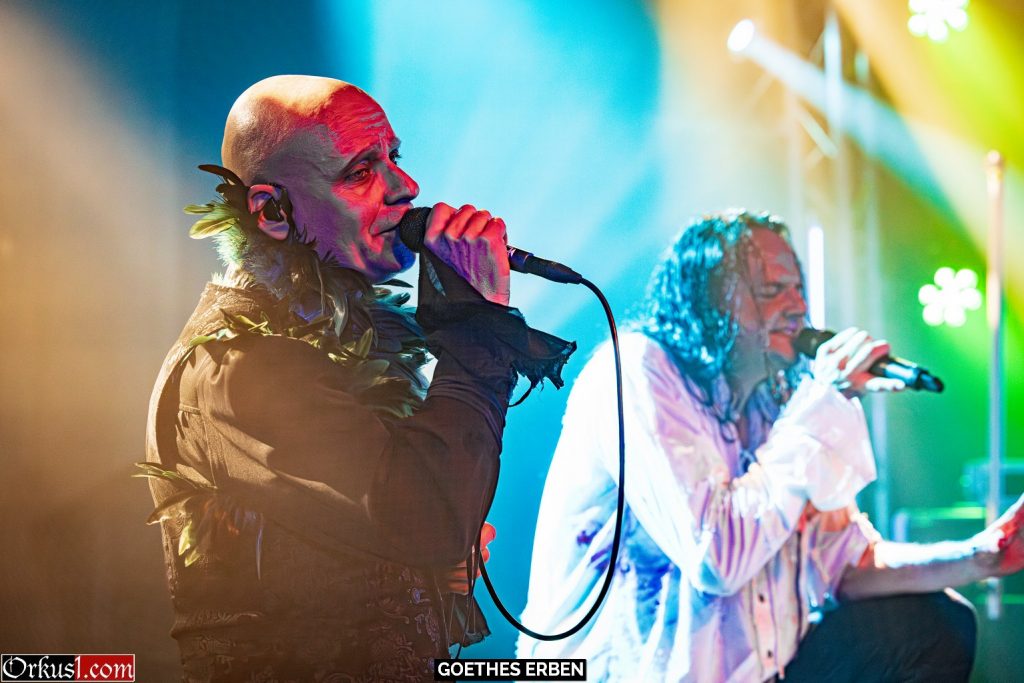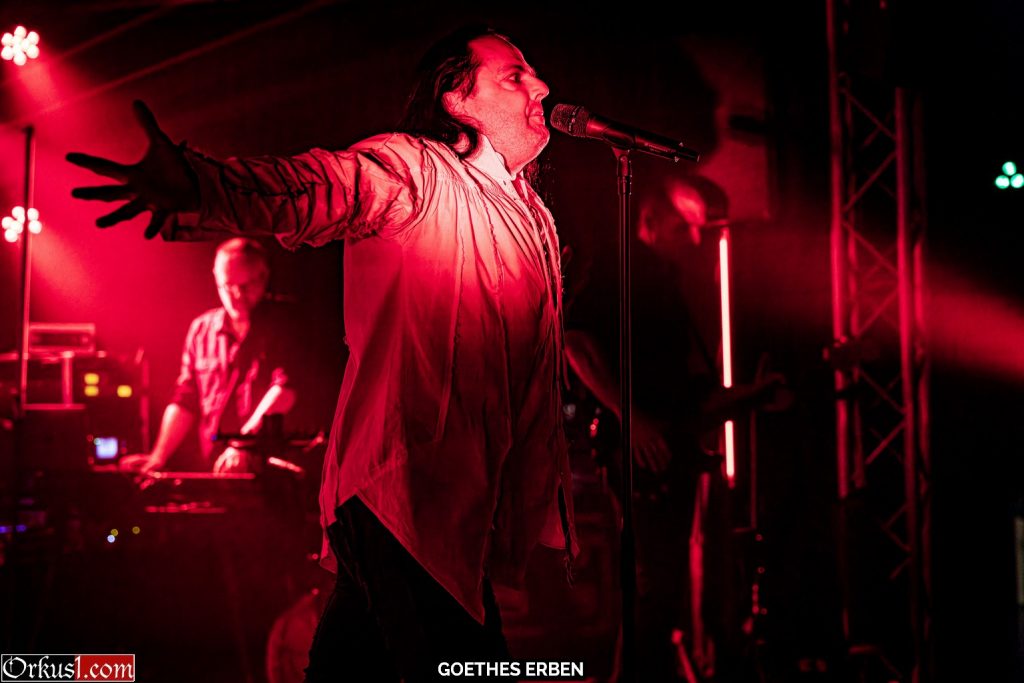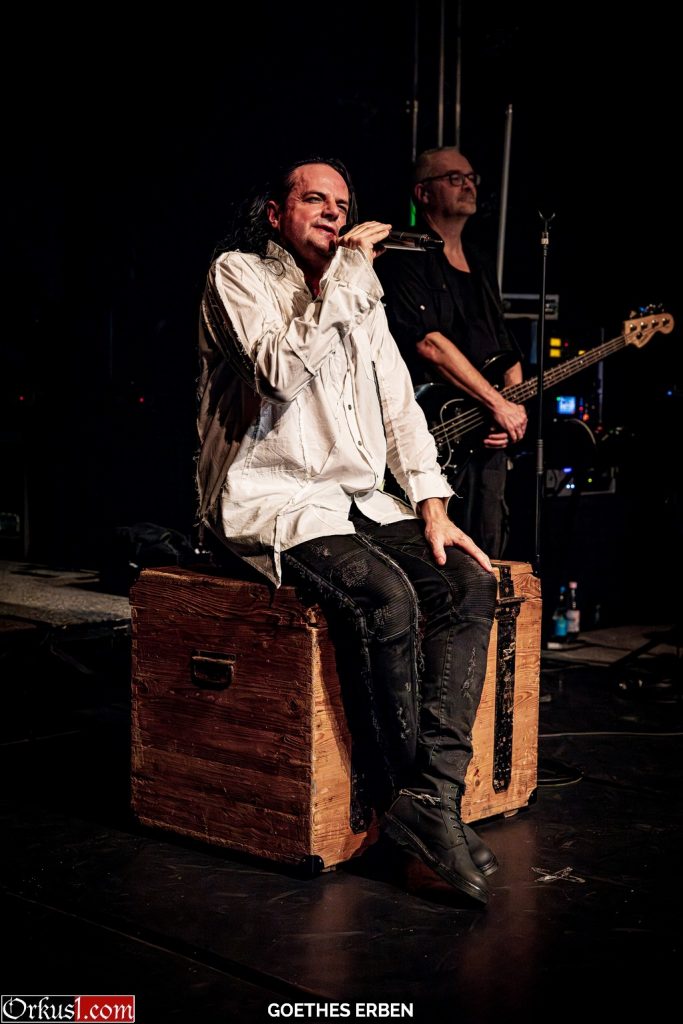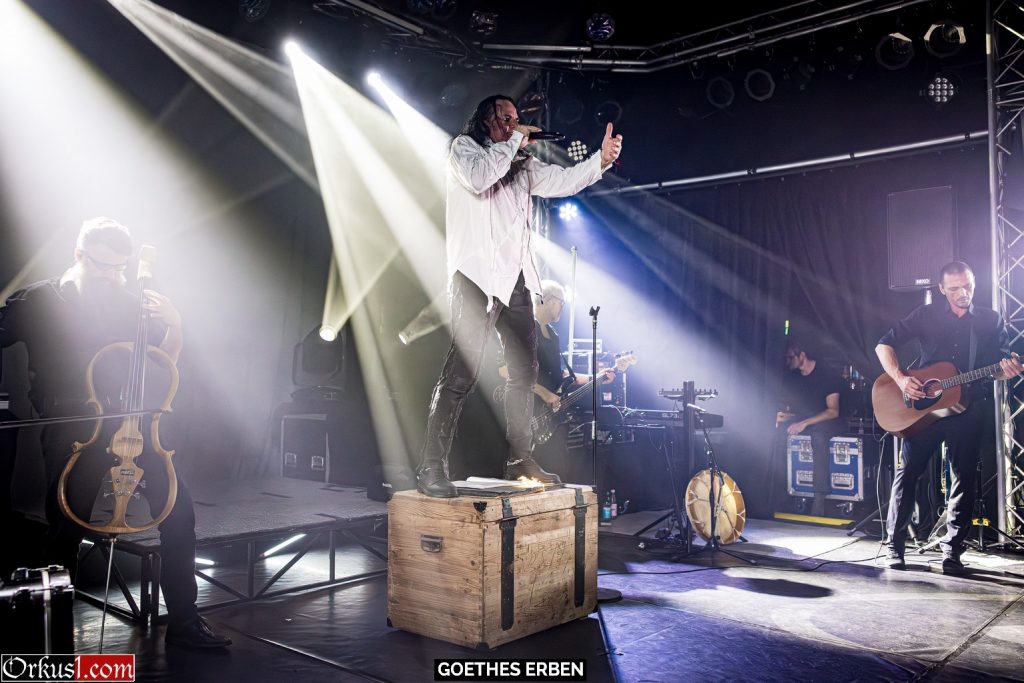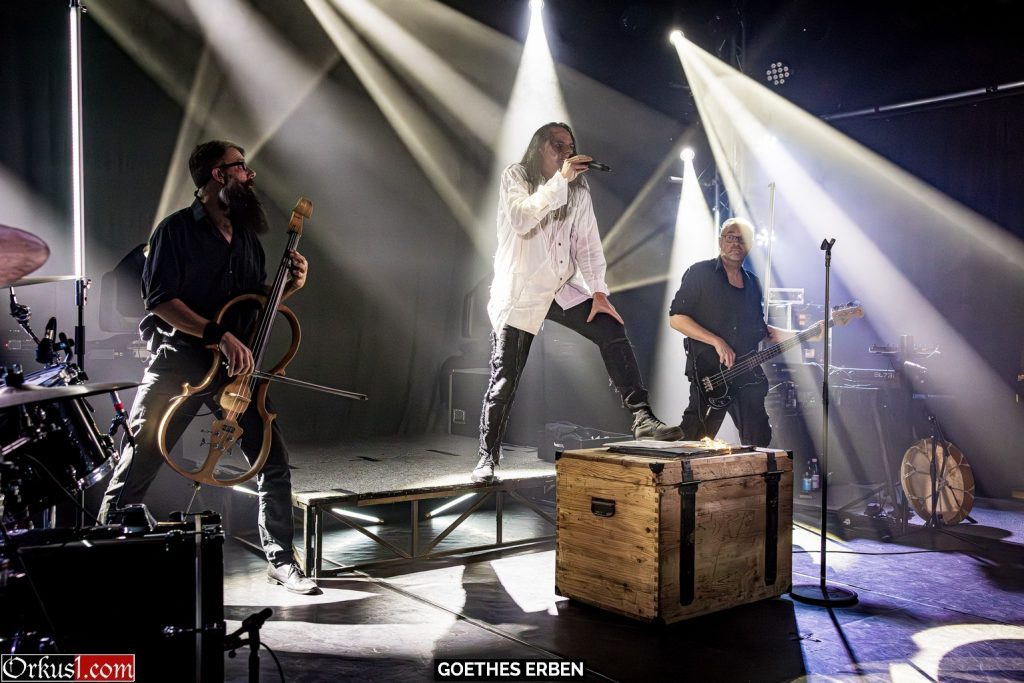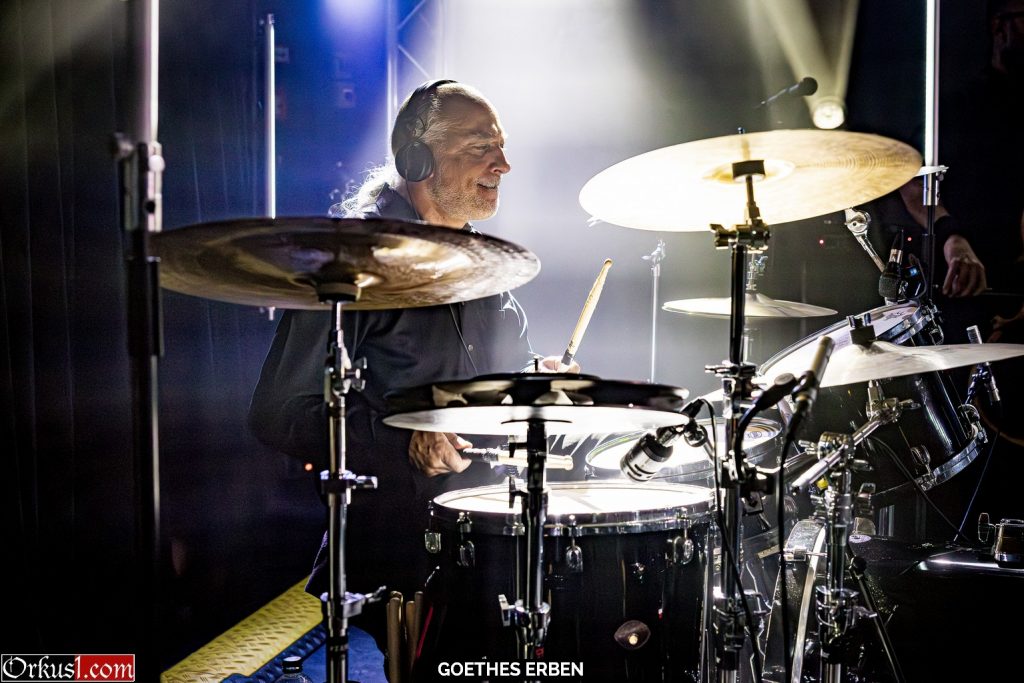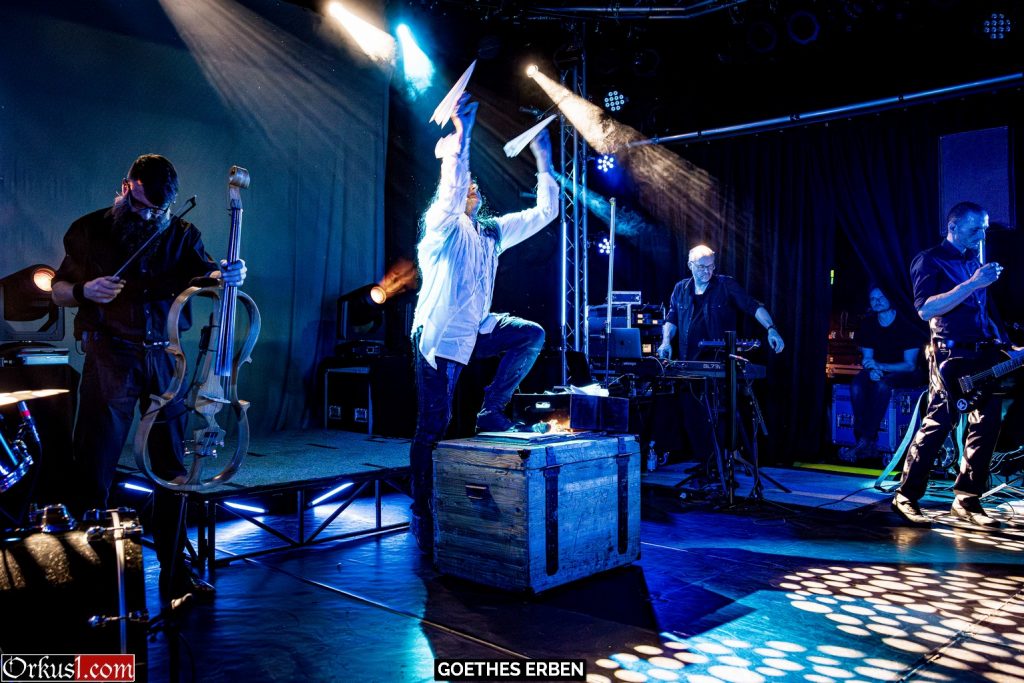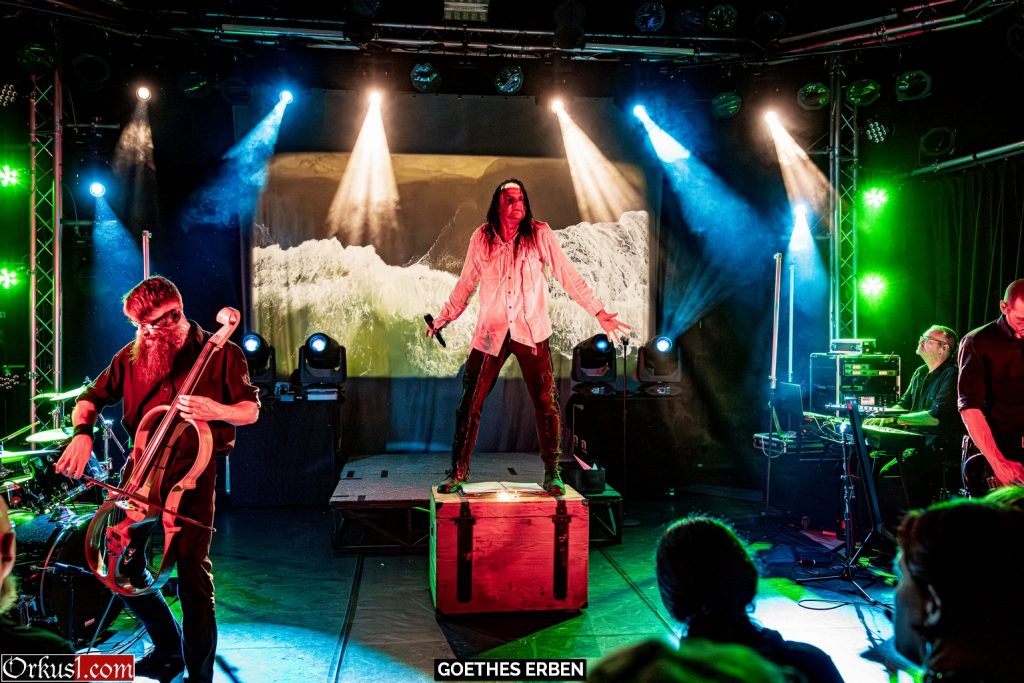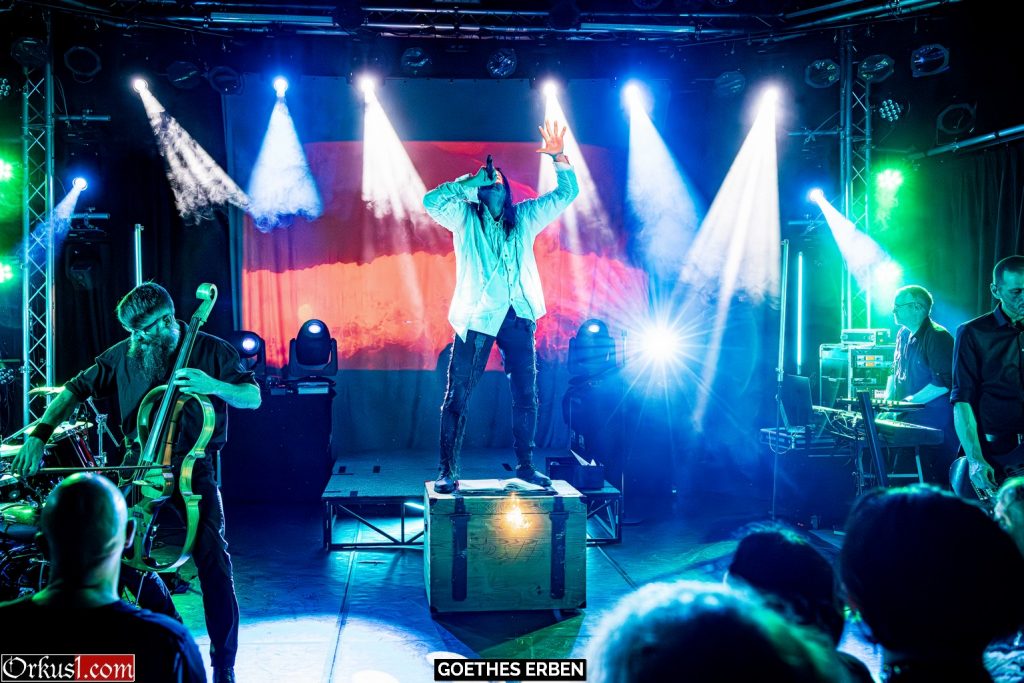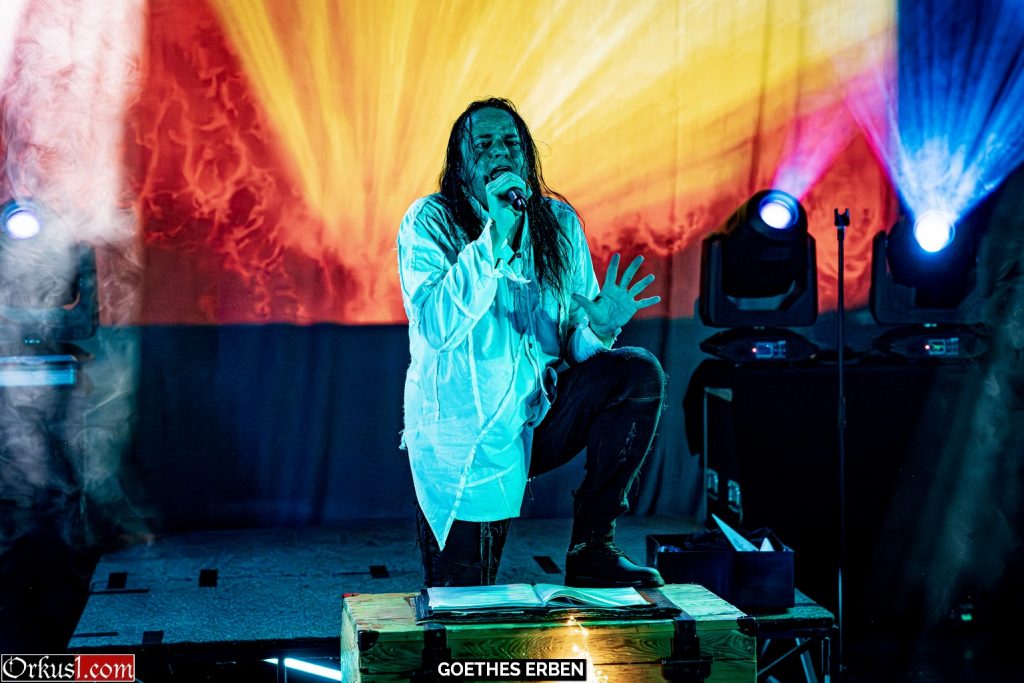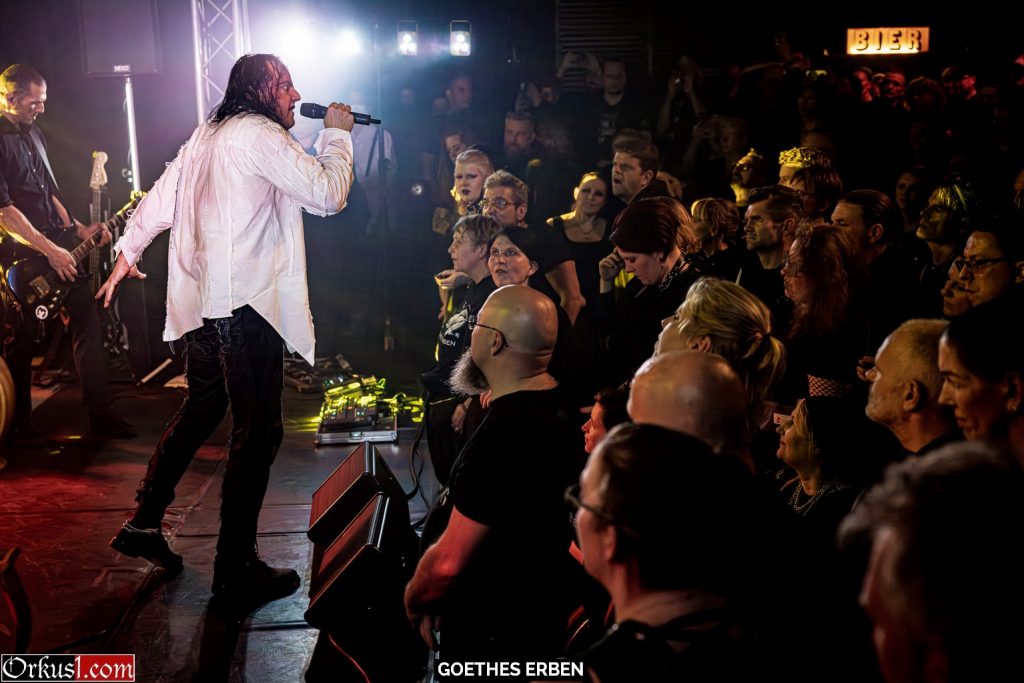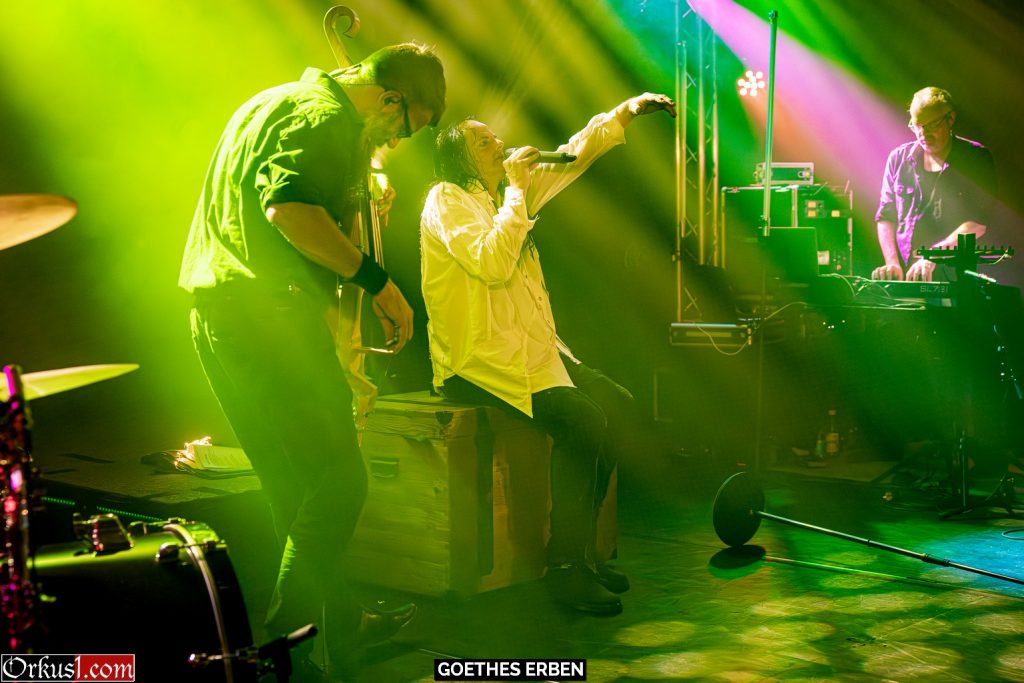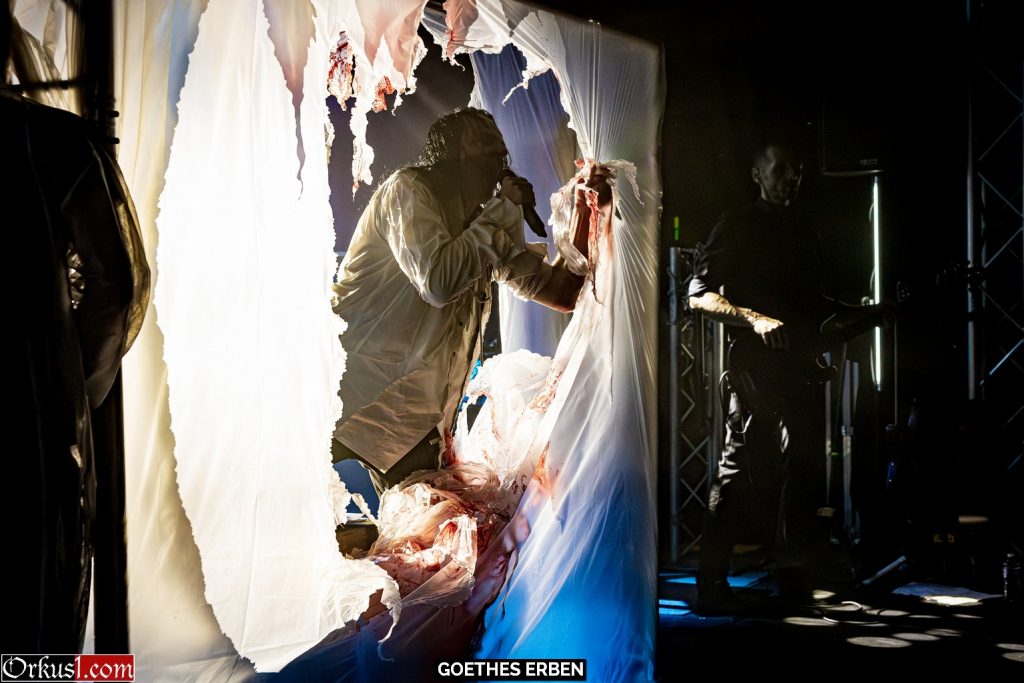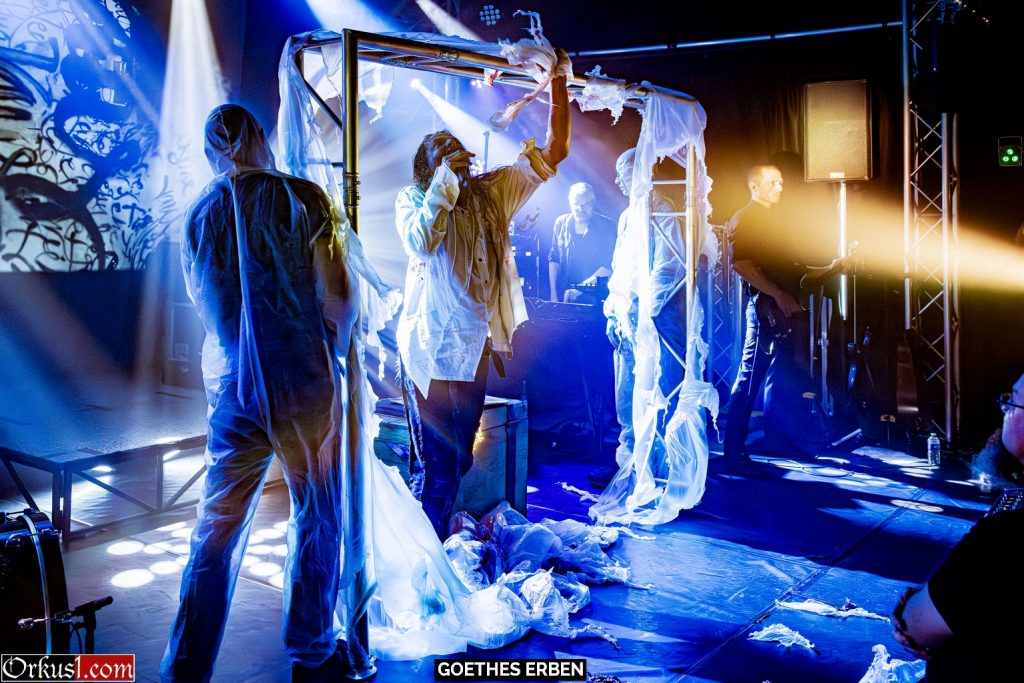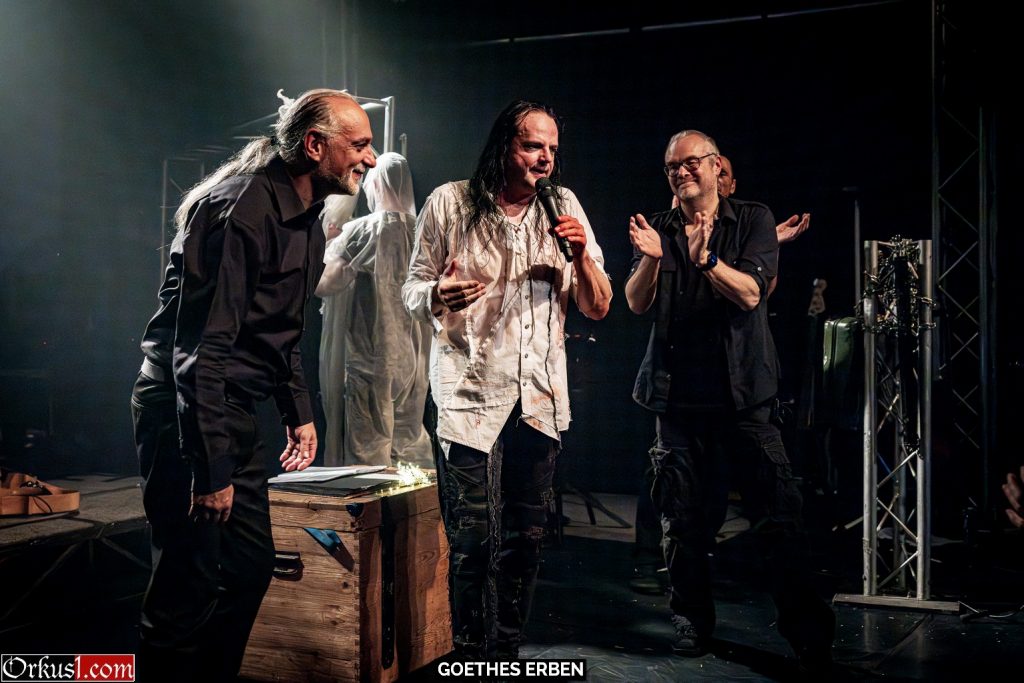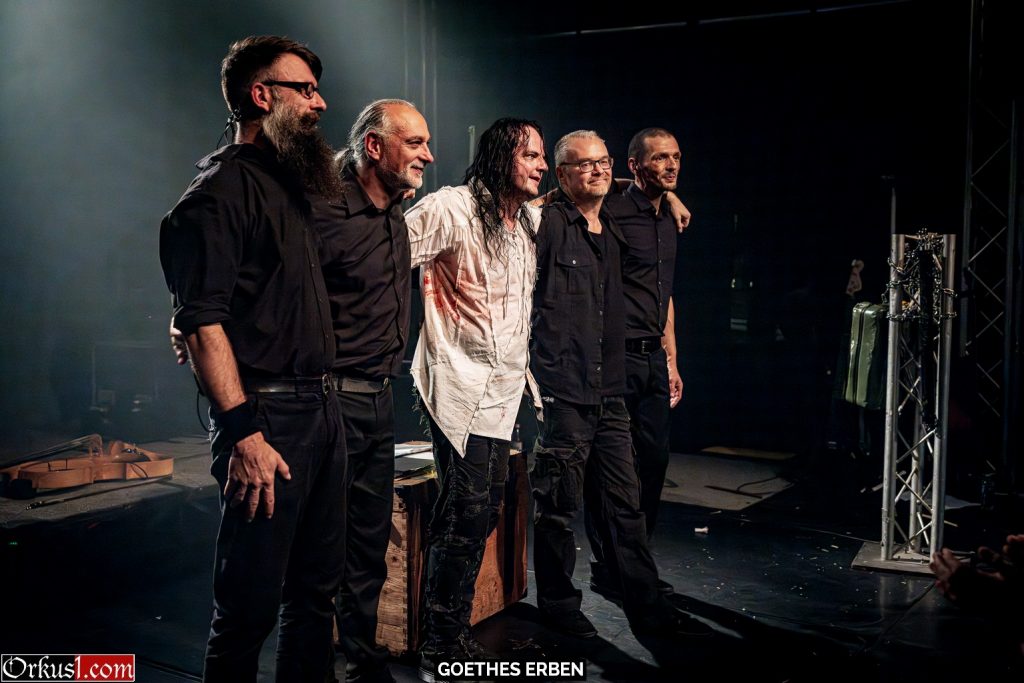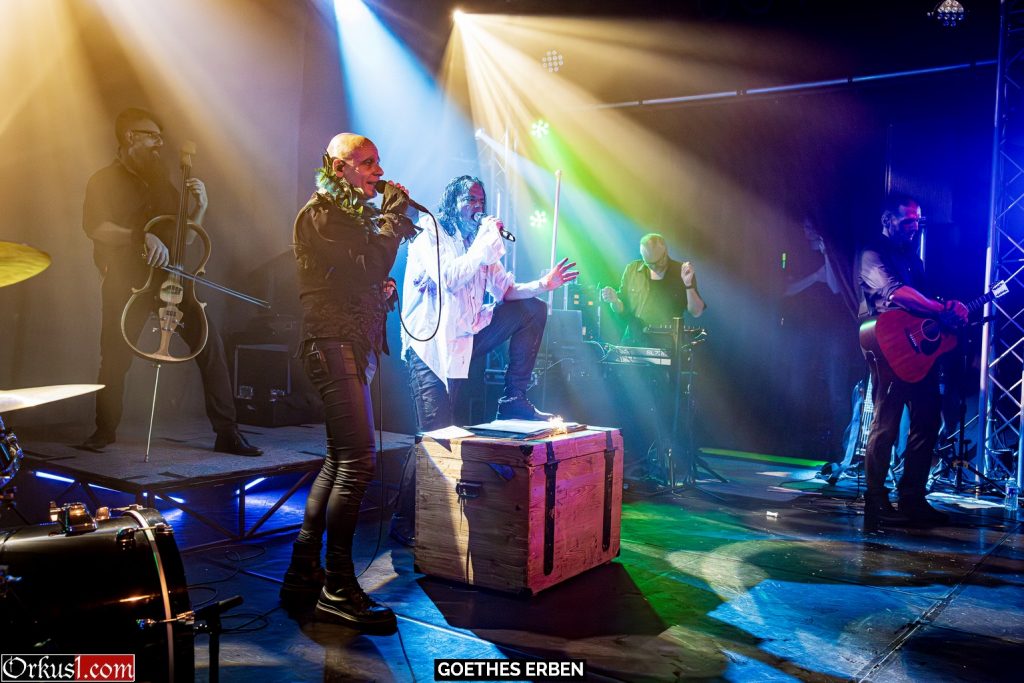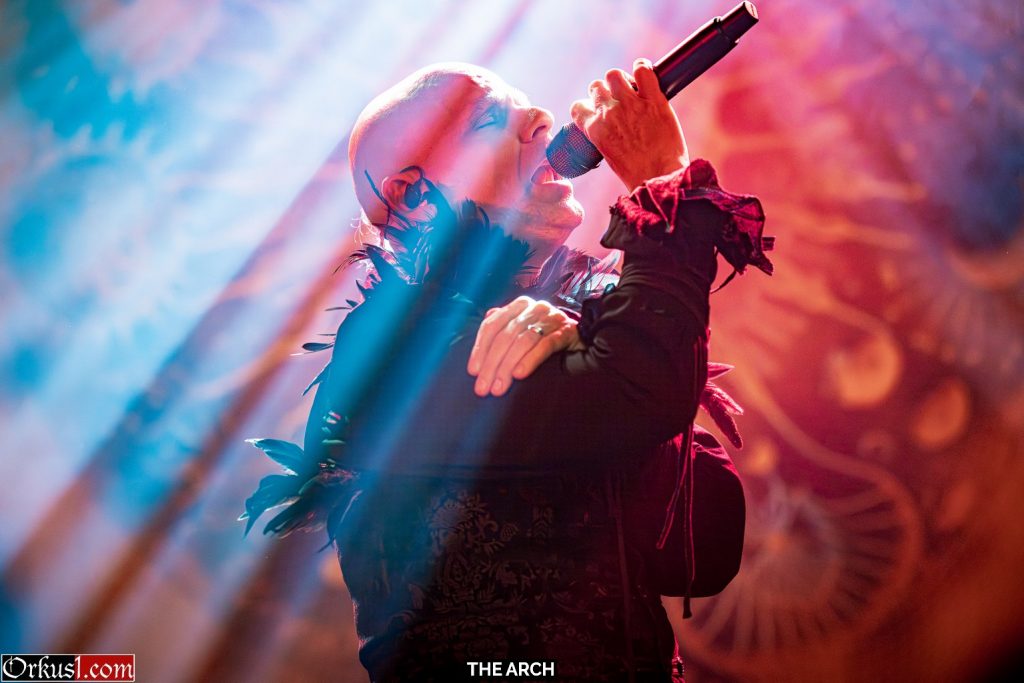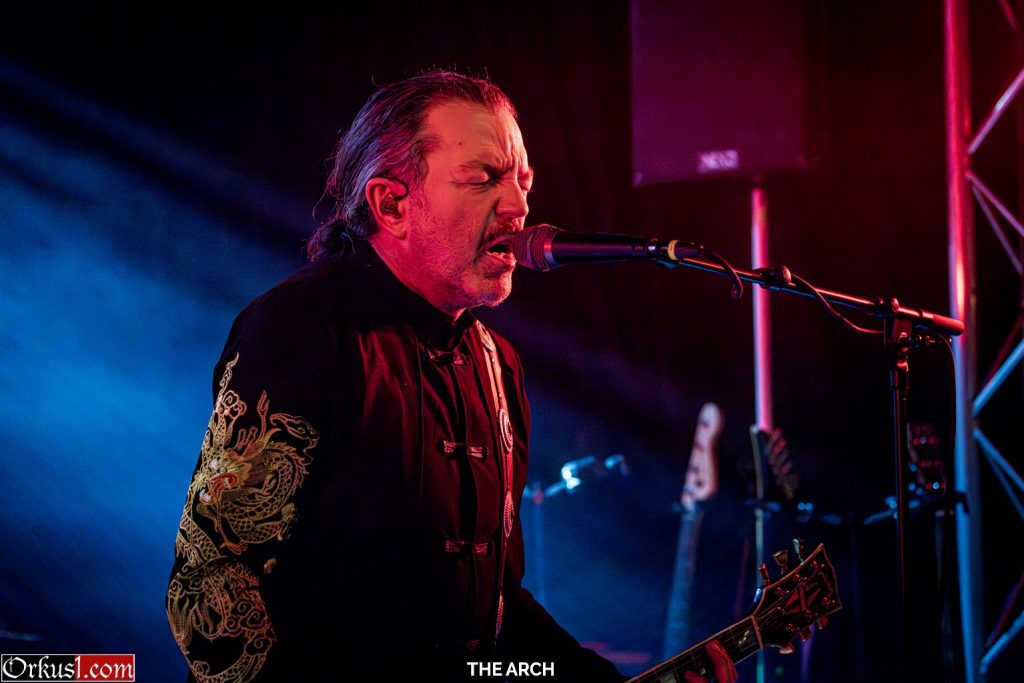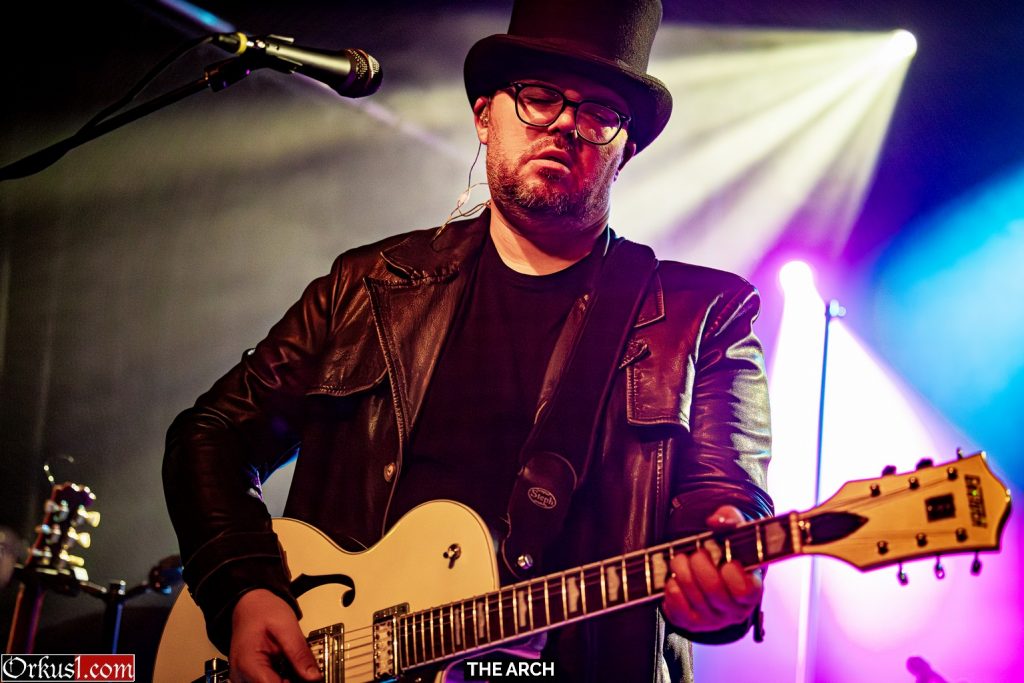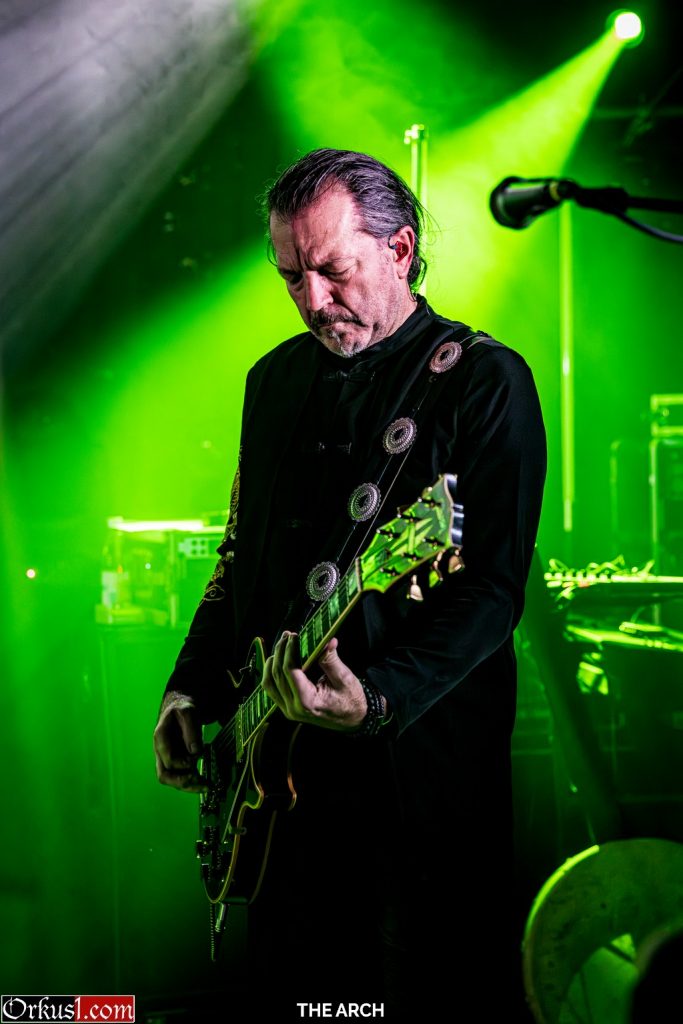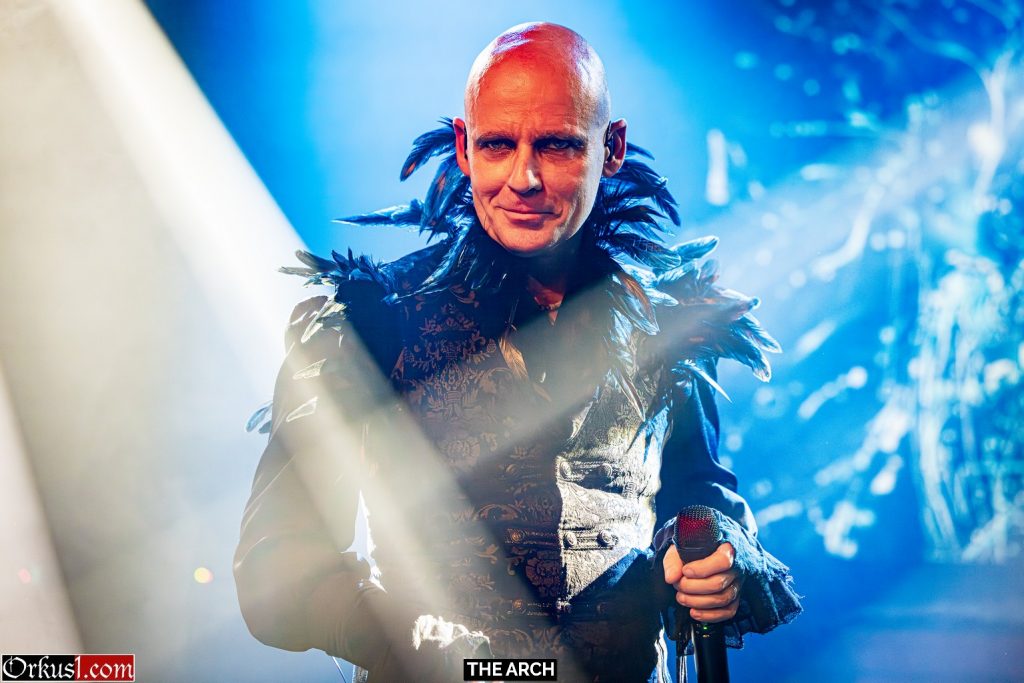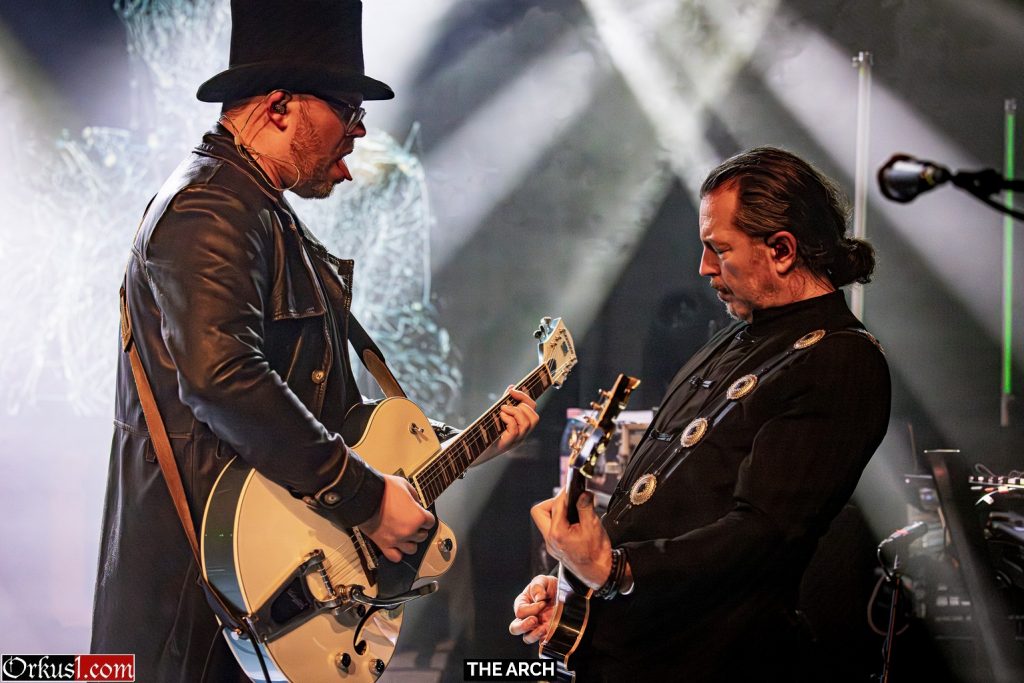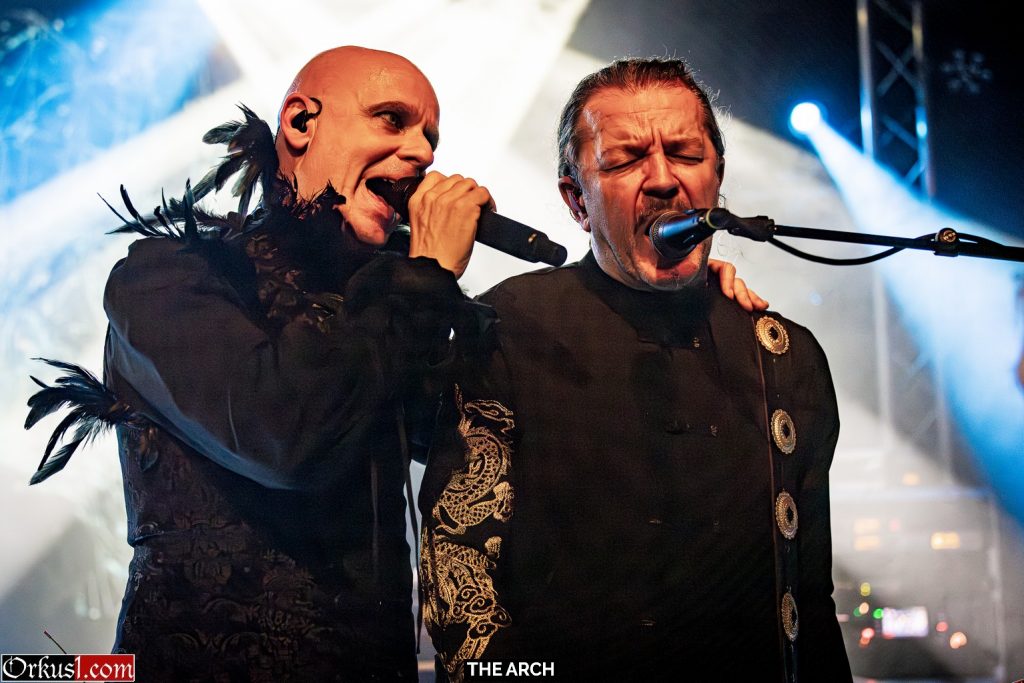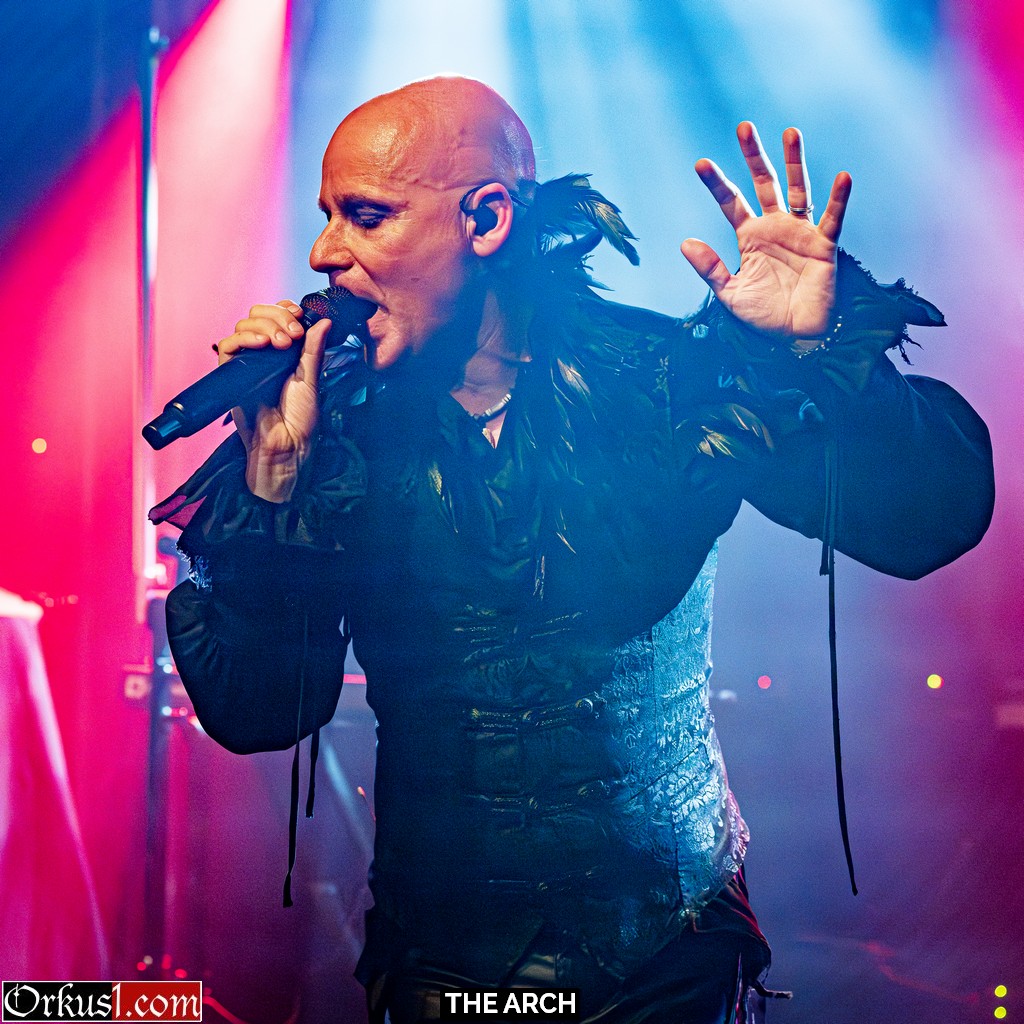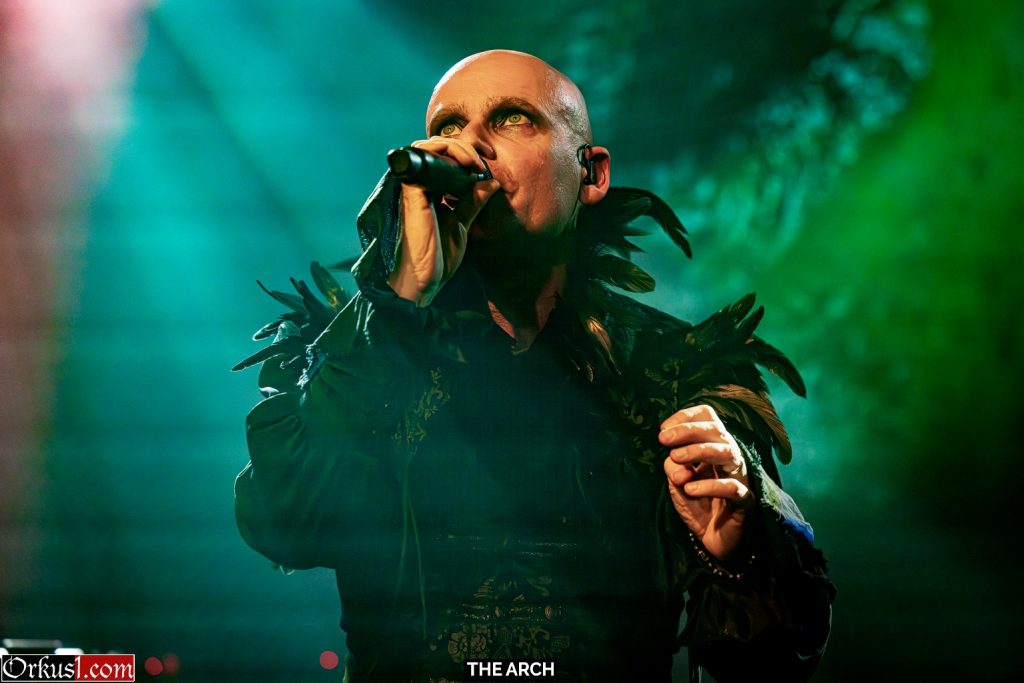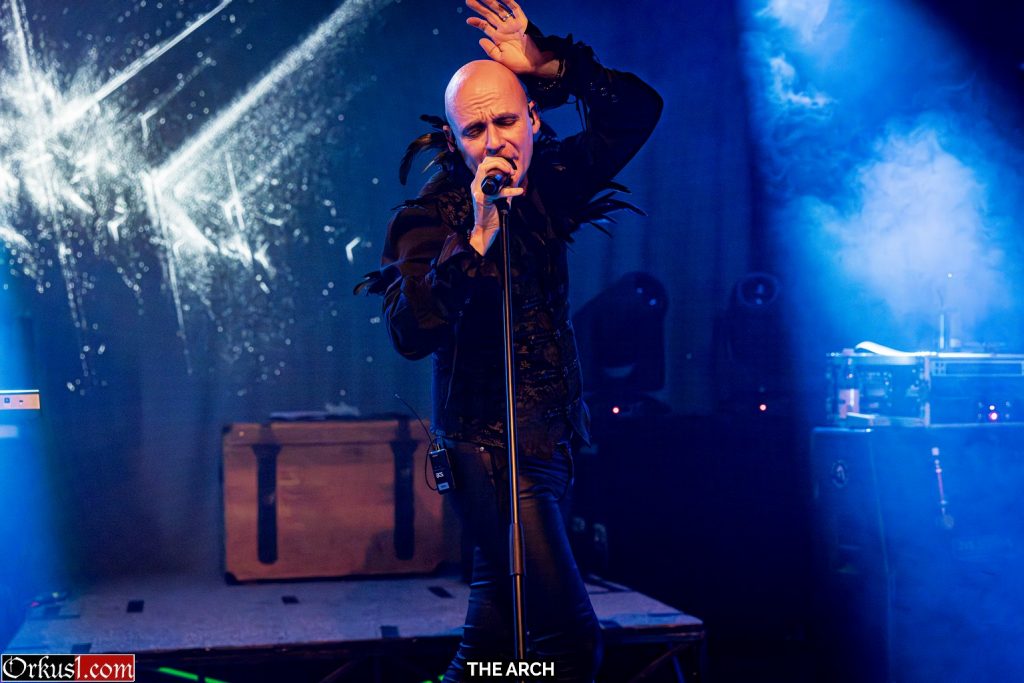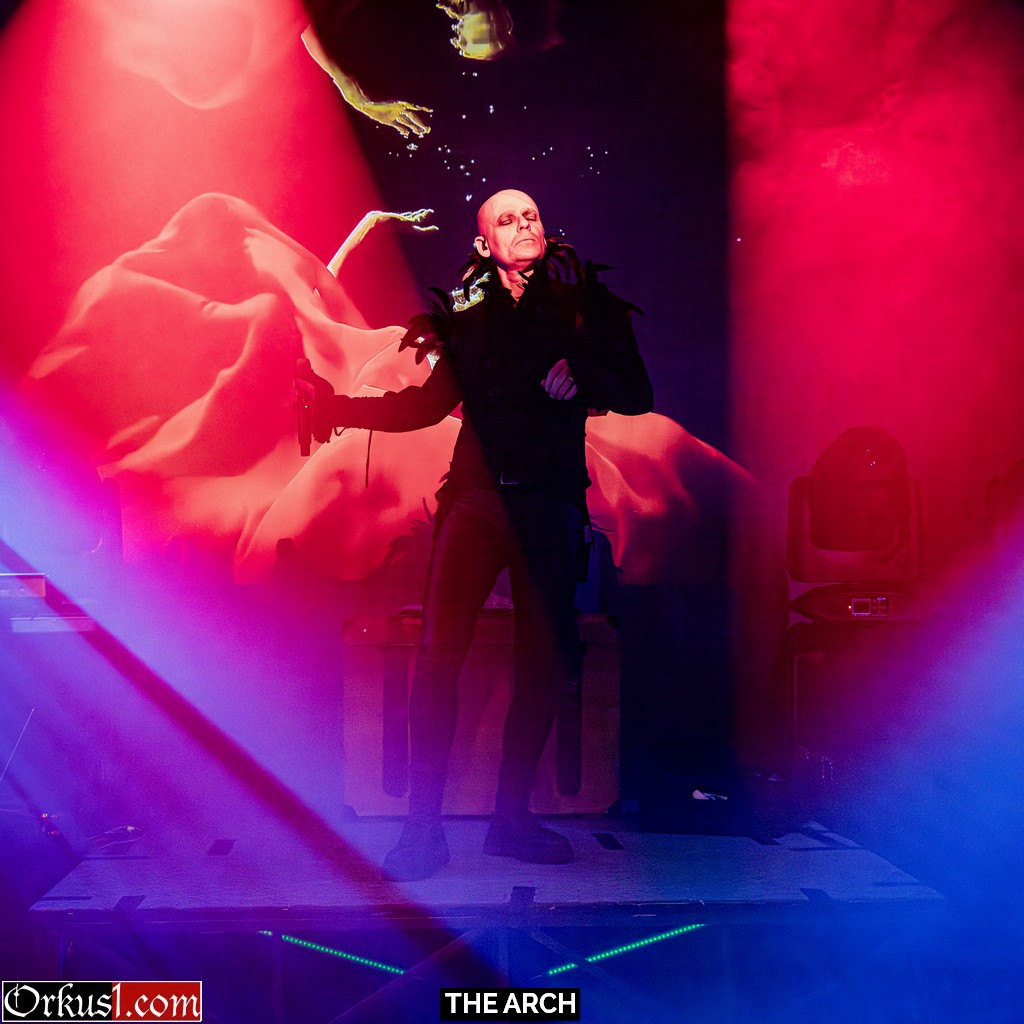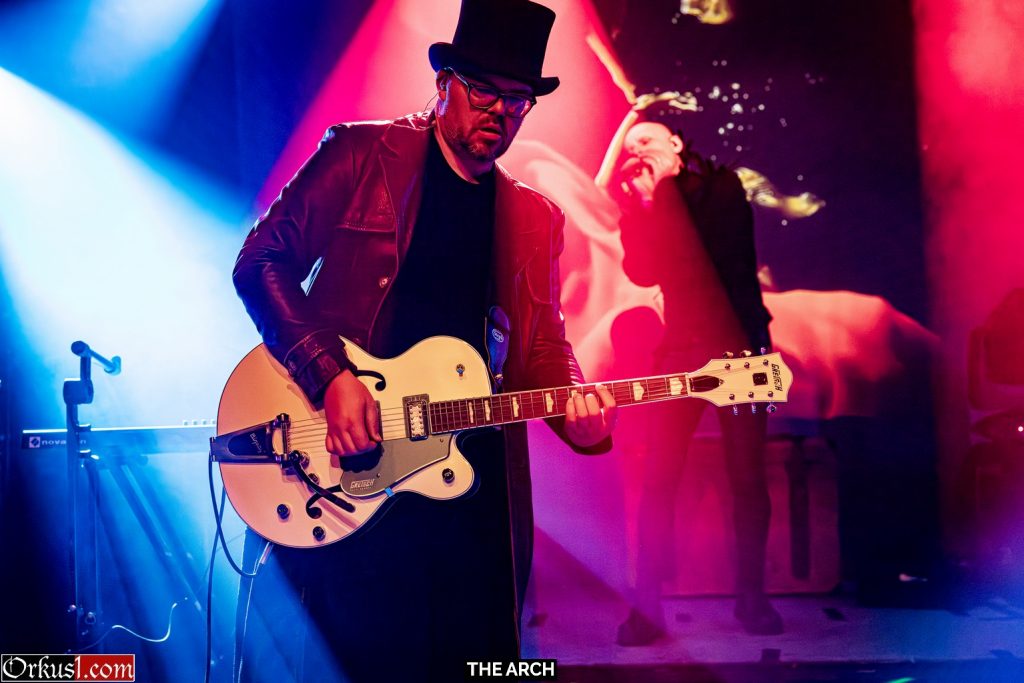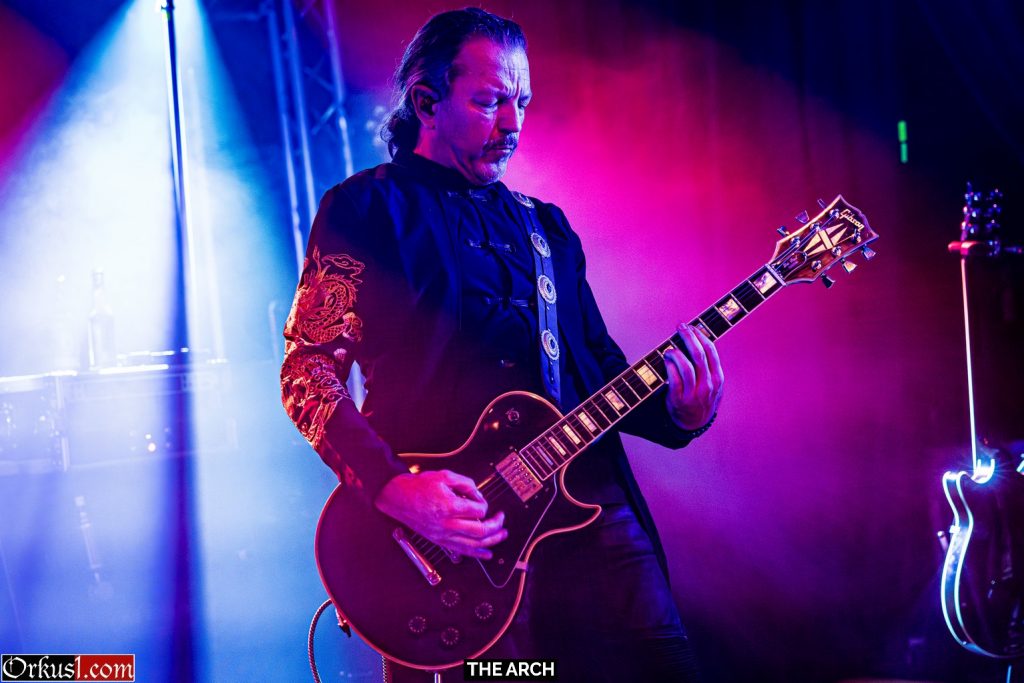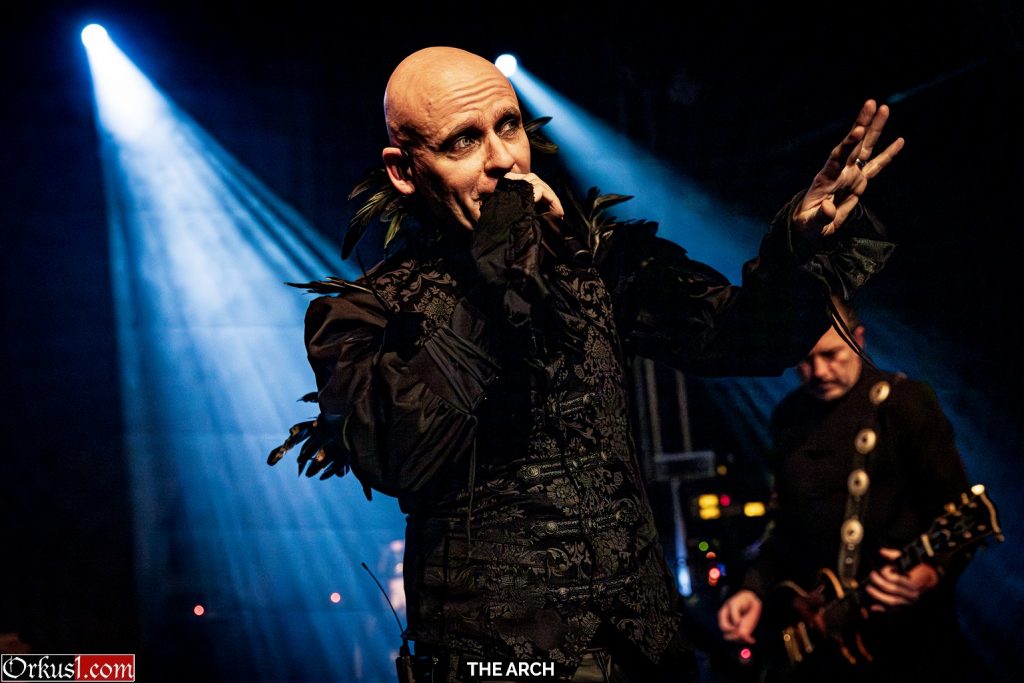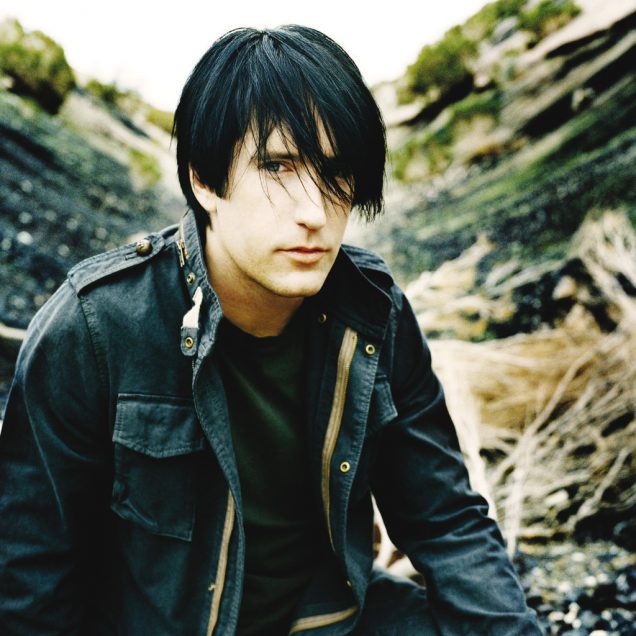Experienced live: GOETHES ERBEN
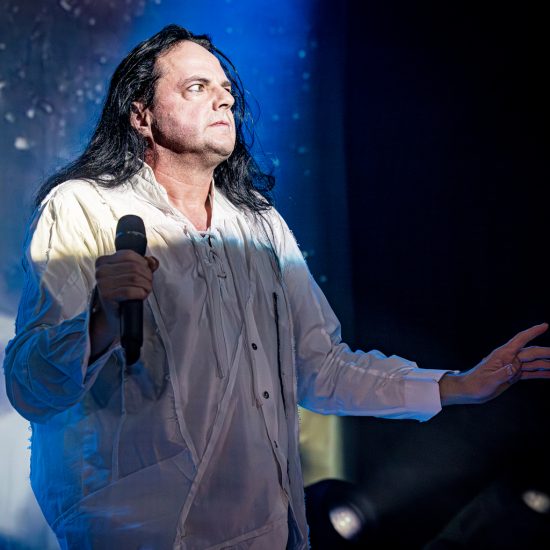
Berlin, Wabe, November 17, 2024
There is no doubt that Goethes Erben are a style-defining pioneer, but also an icon of the German dark wave and gothic scene. Under the direction of Oswald Henke, a unique style developed that combined music, theater and even more so the poetry of words to create something new. – An avant-garde musical theater. Since 1989, Oswald’s charismatic frontman and creative mind has transcended the boundaries of traditional musical genres. His albums and songs always tell stories of transience and human abysses. Emotionally profound and often socially critical. The concerts resemble an intense theatrical production and, characterized by Henke’s expressive stage presence and the power of his words, draw the audience into an interplay of melancholy, drama and intensity. In November 2024, Goethes Erben played another small tour, a “dystopian journey through time – part 2” through four German cities – and we were there in Berlin.
A prelude
Goethes Erben concerts are a bit like a surprise egg: you can look forward to surprises with excitement and in anticipation of having fun! That’s what happened to many fans even before they entered the Berlin Wabe when Oswald Henke suddenly appeared while they were waiting in line at the door and asked each and every one of them personally where they had come from. This gesture gave the concert evening a personal, almost intimate touch, which underlined the special relationship between Goethe’s heirs and their fans. It was a surprising start in the “City of Dreams”.
The first act
In the very well-filled Berlin Wabe, a cultural center built in 1986 on the grounds of the IV Municipal Gasworks in the Berlin district of Prenzlauer Berg/Pankow, the Belgian band The Arch , announced by Oswald Henke himself, opened the evening with a powerful and atmospheric set. With their characteristic mix of dark wave, post-punk and spherical keyboard sequences and a singer reminiscent of Brian Eno, Gerd Van Geel, they quickly managed to fascinate the Berlin audience. Of course, their club hits such as “Ribdancer”, “Eyes Wide Open” and the piano version of “Babsi ist tot” with the support of Goethes-Erben cellist Benni Cellini were not to be missed.
If only words were my language
After a short break, the dystopian journey through time eagerly awaited by the fans began. Although it would have had the potential of a 35th anniversary program, it was deliberately not one. Oswald Henke decided not to present a classic “best-of”, but rather his very special “was and is important” selection. This decision underlined his artistic integrity, always acting beyond convention. With the powerful opener “Rot” from the album “Am Abgrund”, Goethes Erben immediately captivated the Berlin audience. The combination of theatrical depth and intense presence was captivating from the very first minute. Goethes Erben seamlessly took the audience on an emotional journey with songs from the current album “X”, including “Nagen”, “Traum vom Leben”, “Schmerz” and the very haunting “Ich bin allein”. With an incomparable blend of musical power and Henke’s haunting performance, he literally hurled his ecstatic rage and socio-critical messages into the audience, leaving goosebumps and amazement in equal measure. So there he was, Oswald Henke, the “darling of the gods”.
Sky gray planetary melodies
Over the course of the evening, Goethes Erben presented a varied set that included classics such as “Nacht der 1.000 Worte”, “Nichts bleibt wie es war” and “Die Brut” as well as newer songs from recent years such as the oppressively intense “Lazarus” and the driving “Darwins Jünger”. A highlight was the dreamy song “Stadt der Träume” (City of Dreams), which got under your skin with its melancholy power, both musically and lyrically. Of course, the frenetically celebrated “Glasgarten”, probably the biggest hit by Goethe’s heirs, was not to be missed. In a special interpretation, Gerd Van Geel, frontman of The Arch, took over the part originally sung by Peter Heppner. Together, Henke and Van Ge el delivered an impressive performance that moved the Berlin audience with its melancholy intensity and profound emotionality.
The finale: melancholy and applause
After more than two hours, a grandiose theatrical concert evening ended with a third encore and the philosophical “Lebend lohnt es”, which was made even more haunting by the minimalist background music. This special, unique mixture of music and theater, with socio-critical messages and an Oswald Henke who repeatedly took on the role of a narrator and provoked the audience to think with provocative texts, was more than just a concert. – It was an intense, artistic experience and the audience thanked him with long-lasting applause. Without gimmickry, using only his voice and facial expressions, he brought the themes of the heirs – transience, social abysses and personal emotions – to the stage and proved why Goethe’s heirs have been an indispensable part of the scene for decades.
Text & Photos: Thomas Friedel Fuhrmann
Setlist:
“Intro” – “Rot” – “Nagen” – “Träume vom Leben” – “Schmerz” – “Ich bin allein” – “Keine Farben” – “Nacht der 1000 Worte” – “Vergessen” – “Lazarus” – “Nichts bleibt wie es war” – “Die Brut” – “Darwins Jünger” – “Das Ende ist da” – “Stadt der Träume” – “Seelenschatten” – “Am Abgrund” — “Verstümmelung” – “Xenomelie” — “Glasgarten” – “Märchenprinzen” — “Wann” – “Lebend lohnt es”
